








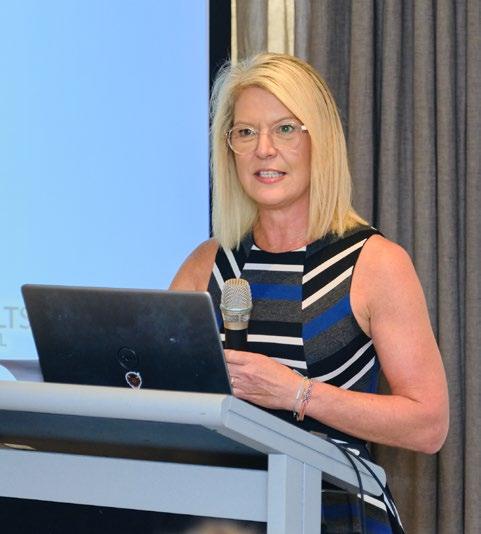

l The growing significance of ESG factors in credit risk management
l Economic update: Stronger start to 2025 for Australian businesses but tariff uncertainty looms
l Focus on Good360: WINC Charity Partner for 2025













l The growing significance of ESG factors in credit risk management
l Economic update: Stronger start to 2025 for Australian businesses but tariff uncertainty looms
l Focus on Good360: WINC Charity Partner for 2025

National partners
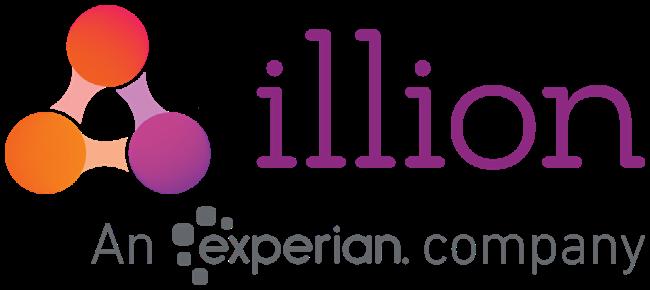

Divisional partners




Divisional supporting sponsors


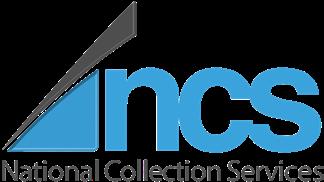




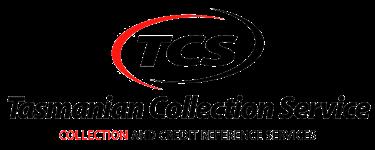


Monika Lacey MICM
Stronger start to 2025 for Australian businesses but
tariff uncertainty looms
Ivan Colhoun
The growing significance of Environmental, Social, and 22 Governance (ESG) factors in credit risk management
Neill Borg MICM
Covington



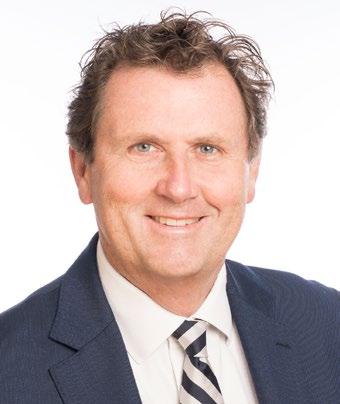





ISSN 2207-6549
DIRECTORS
Julie McNamara FICM CCE – Australian President
Mary Petreski FICM CCE – Victoria/Tasmania
Troy Mulder FICM CCE – Western Australia/Northern Territory
Rob Jackson MICM CCE – South Australia
Theresa Brown MICM CCE – New South Wales
Steven Staatz MICM CCE – Queensland
Daniel Taylor MICM – Co-opted Director
CHIEF EXECUTIVE OFFICER
Nick Pilavidis FICM CCE
Level 3, Suite 303, 1-9 Chandos Street, St Leonards NSW 2065
PO Box 64, St Leonards NSW 1590
Tel: (02) 8317 5085, Fax: (02) 9906 5686
Email: nick@aicm.com.au
PUBLISHER
Nick Pilavidis FICM CCE | Email: nick@aicm.com.au
CONTRIBUTING
EDITORS
NSW – Gary Poslinsky MICM
Qld – Emma Purcival MICM CCE
SA – Maria Scacchitti MICM
WA/NT – Jeremy Coote MICM CCE
Vic/Tas – Alex Hawtin MICM
Claire Kasses, General Manager
Tel Direct: 02 9174 5727 or Mob: 0499 975 303
Email: claire@aicm.com.au
EDITING and PRODUCTION
Anthea Vandertouw | Ferncliff Productions
Tel: 0408 290 440 | Email: ferncliff1@bigpond.com
THE EDITOR reserves the right to alter or omit any article or advertisement submitted and requires idemnity from the advertisers and contributors against damages or liabilities that may arise from material published. CREDIT MANAGEMENT IN AUSTRALIA is published by the Australian Institute of Credit Management, Level 3, Suite 303, 1-9 Chandos Street, St Leonards NSW 2065. The views expressed in CREDIT MANAGEMENT IN AUSTRALIA are not necessarily those of Australian Institute of Credit Management, which does not expect or invite any person to act or rely on any statement, opinion or advice contained herein (whether in the form of an advertisement or editorial) and neither the Institute or any of its employees, agents or contributors shall be liable for any opinion contained herein. © The Australian Institute of Credit Management, 2025.
CONTRIBUTIONS SHOULD BE SENT TO:
Editor, Level 3, Suite 303, 1-9 Chandos Street, St Leonards NSW 2065 or email: aicm@aicm.com.au
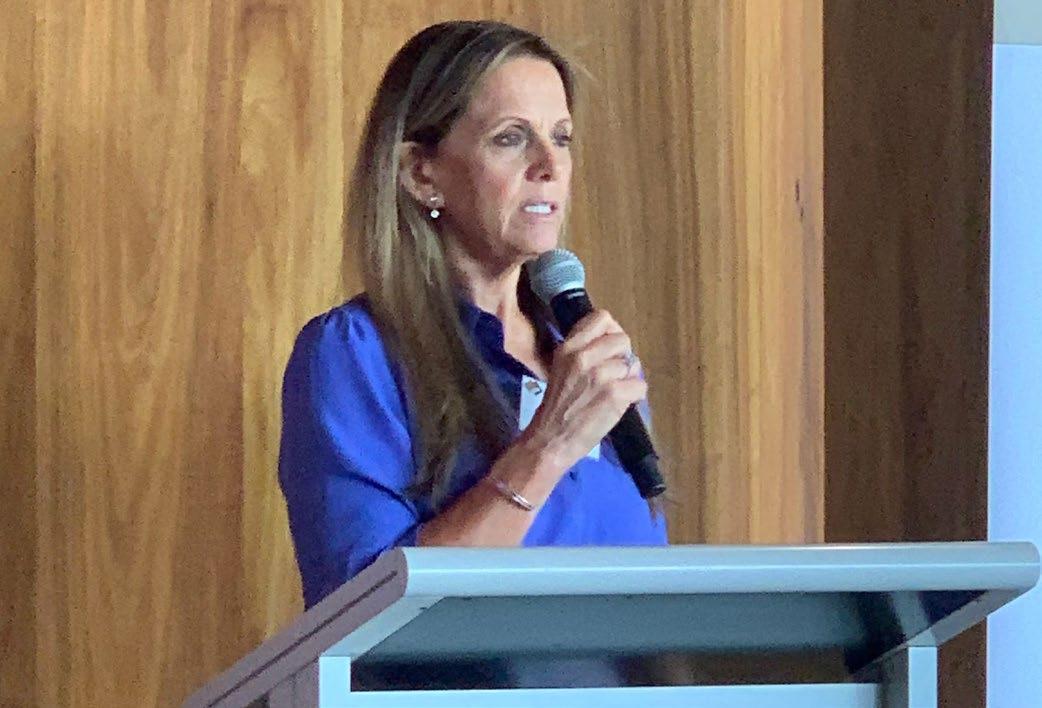




Julie McNamara FICM CCE National President
Hello everyone and welcome to the February edition of the AICM magazine, the first for 2025.
Welcome back and a big thank you to all our national and divisional partners and sponsors without the support of whom, this would not be possible.
We have started the year off with a bang and all systems are a go with a great line up of events for 2025 in the AICM calendar.
Firstly, we have the Risk and Economic series, together with our WINC series and great social events currently being organised in all states.
This year’s WINC series has just been launched with a well-deserved charity announced for 2025: “Good 360”. Good360 is focused on connecting businesses with surplus goods to people in need. By working with charities, disadvantaged schools, and vulnerable
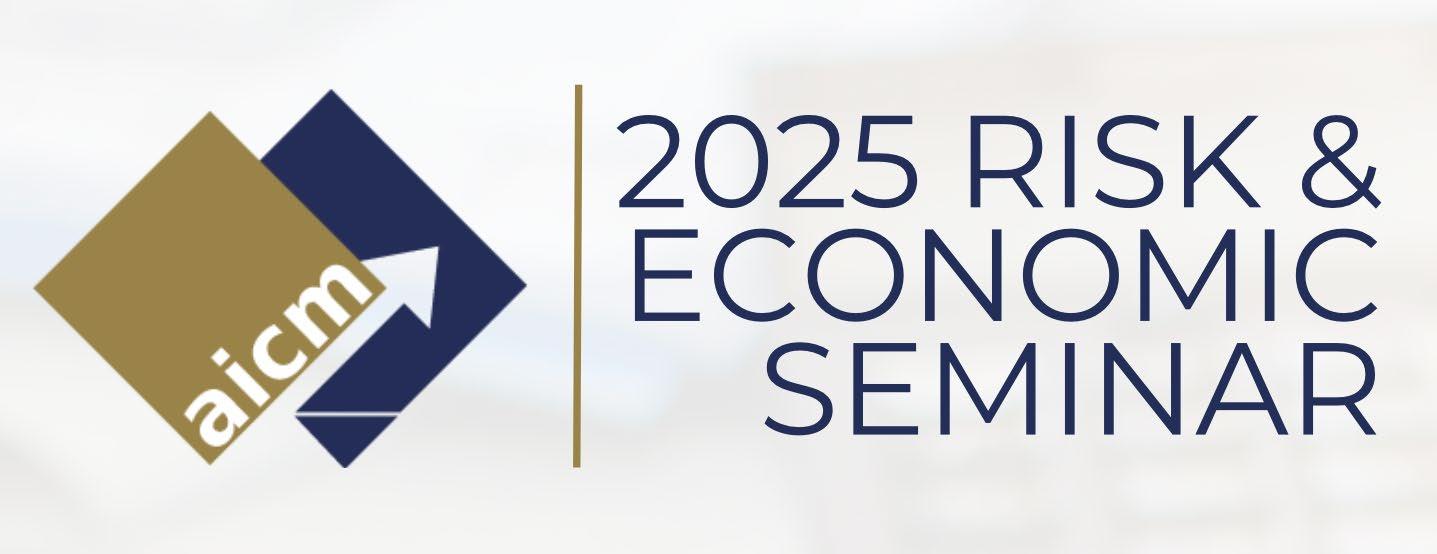

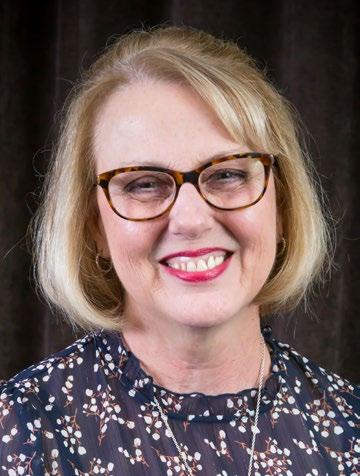
communities across Australia, they redistribute unsold, excess, or disaster recovery goods, helping reduce waste and supporting people facing hardship.
Where has the time gone? This year we will be celebrating 10 years of WINC!
For those of us who have been involved with WINC from the start, I am sure you would agree we have come a long way from our humble beginnings where the goal was to reach 100 guests at each state WINC to what it was in 2024, a highly successful sell out event series raising an amazing $25K across Australia for our chosen charity.
I am so excited to say we are all looking forward to the 2025 WINC webinars and luncheons and reflecting on 10 years of impact within the credit community. Don’t hesitate to register for the webinars and book your tables

“We have started the year off with a bang and all systems are a go with a great line up of events for 2025 in the AICM calendar.”
for the luncheons, tickets are available for the celebrations!
We are also looking forward to the launch of our CKH, Credit Knowledge Hub in the next few weeks which is a major development for AICM and will provide our members with tools to advance and continue to learn and develop their credit teams. More information to be released as we get closer.
Our Special Interest groups are also growing in popularity and are a designed to enhance your professional development and foster stronger connections within our community. These groups will offer a unique platform to dive deep into niche topics, share best practices, and discuss the day-to-day challenges and triumphs of our profession. It is a free member service. To register, please check the member portal.
I am very excited about the 2025 AICM Awards
program with the Credit Team of the Year award now open for applications, this will close on 31st March. Thank you to Equifax for their support.
Stay tuned for the YCP and CP awards campaign, these will kick off in April 2025.
If you haven’t already achieved CCE status, this is the year to “go for it”! The next CCE assessment will be held in March and details are available on our website.
And finally, we have National Conference on The Gold Coast this year at the JW Mariott Gold Coast Resort & Spa (Surfers Paradise) for three days of amazing networking, learning and celebrations of all things credit, the highlight of our calendar from 15th – 17th October 2025.
Lock it in your diaries! I look forward to seeing you all there!
Julie McNamara FICM CCE National President

The Australian Institute of Credit Management is thrilled to announce the upcoming launch of the Credit Knowledge Hub (CKH), a revolutionary subscription based online platform designed to elevate your career in credit management.
Why the CKH is a Game-changer
Imagine having 24/7 access to the best practice knowledge and training content you need to become a leading credit professional.
The CKH offers:
l Unlimited access to AICM credit content: Dive into a wealth of resources anytime, anywhere.
l Nationally recognised qualifications: Enhance your credentials with certifications that matter.
The CKH is not just another online platform; it’s a comprehensive tool to help you:
l Develop a unique skill set: Align with the AICM Learning & Development framework to stay ahead in the industry.
l Adapt to evolving needs: Stay responsive to the rapidly changing credit management landscape.
l Ensure compliance: Protect your organisation’s reputation and revenue by staying compliant with legislation and regulations.
l Set a standard: Implement best practices to safeguard your organisation.
l Support team growth: Help your team adapt, grow, and excel.
l Career development: Provide a clear pathway for career advancement within your team.

The CKH is designed to help you achieve your professional goals:
l Learn or refresh on the fundamentals: Keep your knowledge up-to-date.
l Obtain a qualification: Choose from Cert III in Mercantile Agents, Cert IV in Credit Management, or a Diploma of Credit Management.
l Become a Certified Credit Executive (CCE): Take your career to the next level.
l Assign units to staff: Use the CKH for induction and performance development planning.
l Address knowledge gaps: Help team members step up to new roles with targeted learning.
Stay tuned for the launch of the CKH and get ready to transform your career in credit management. The future of credit knowledge is here, and it’s more accessible than ever.
AICM would like to congratulate its recent graduates:
FNS51522 Diploma of credit management
Kaye Scott NSW
FNS30420 Certificate III in Mercantile Agents
Abhishek Arora India
Genpact



eInvoicing: 4 March 2025 – Dive into the latest in electronic invoicing through the Peppol Framework. Register Now
Personal Insolvency: 14 March 2025 – Explore trends, scenarios, and legislative changes. Register Now
Commercial Credit KPI’s: 25 March 2025 – Discuss trends, causes, and initiatives to improve KPI’s. Register Now
Complaints and Disputes: 15 April 2025 – Share best practice insights, legislative updates, and industry trends. Register Now
Click
l Share and Learn: Exchange insights on what strategies work and what don’t, gaining valuable knowledge from peers.
l Answer Known and Unknown Questions: Find answers to your questions and discover new ones through engaging discussions.
l Deep Dive into Practical Aspects: Explore the practical, day-to-day aspects of our work in greater detail.
l Explore Complex Issues: Understand how others approach areas where there are no clear blackand-white answers so you can implement the best solution for your scenario.
l Tap Community Knowledge: Access the collective wisdom of the community and understand the credit profession’s day-to-day realities.
l Understand Best Practices: Learn and implement industry best practices shared by fellow professionals.
l Professional Growth: Gain new ideas for improvement and stay ahead of trends.
l Contribute to Advocacy: Play a role in AICM advocacy efforts and shape the future of our profession.
l Membership Benefits: Enhance your membership experience and build valuable professional relationships.
We are excited to announce the launch of our new member only Special Interest Groups (SIGs), designed to enhance your professional development and foster stronger connections within our community. These groups will offer a unique platform to dive deep into niche topics, share best practices, and discuss the day-to-day challenges and triumphs of our profession.
Personal and Team Development: 6 May 2025 – Focus on recent trends challenges and achievements. Register Now
Customer Engagement and Support: 13 May 2025 –Discuss recent trends, hardship, vulnerability, and resolving payment disputes. Register Now
Corporate Insolvency: 10 June 2025 – Share scenarios, discuss legislative proposals, and drivers of insolvency trends. Register Now
eInvoicing: 17 June 2025 – Dive into the latest in electronic invoicing through the Peppol Framework. Register Now
l Quarterly Zoom Meetings: Join interactive sessions with audio and video.
l Pre-Meeting Surveys: Share your initial views, questions and comments before the meeting to help shape the discussion.
l Facilitated Discussions: Engage in open forums led by experienced chairs.
l Ongoing Engagement: Continue the conversation post-meeting via the AICM LinkedIn Group.
l There will be at least two SIGs each month, with each session lasting one hour.
l Topics will initially be held quarterly which may increase or decrease based on developments in the area.
l Registration is open now for the upcoming sessions.
l SIGs are a member only benefit.
We look forward to your active participation in these groups. Together, let’s shape the future of our profession and strengthen our community.

By Monika Lacey MICM*
With 2025 well and truly in motion, it’s clear New Zealand households and businesses are ready for more financial stability against the current backdrop of global and local economic uncertainty.
After all, while Stats NZ reported a 2.2% rise in the Consumer Price Index for the December 2024 quarter, this is unlikely to delay an Official Cash Rate cut.
Looking to recent credit insight movements may shed some light on the economic path

ahead for Kiwi consumers and businesses.
Financial strain remains evident, with many households and businesses feeling the pressure. Consumer arrears saw a seasonal rise post-holiday, as reliance on credit increased.
Personal loan arrears climbed to 9.2% in December (up from 8.1% in November), while Buy Now Pay Later (BNPL) arrears inched up to 8.2%, though slightly lower than the previous year’s (8.4%).
The number of mortgages
Consumer Arrears Trends
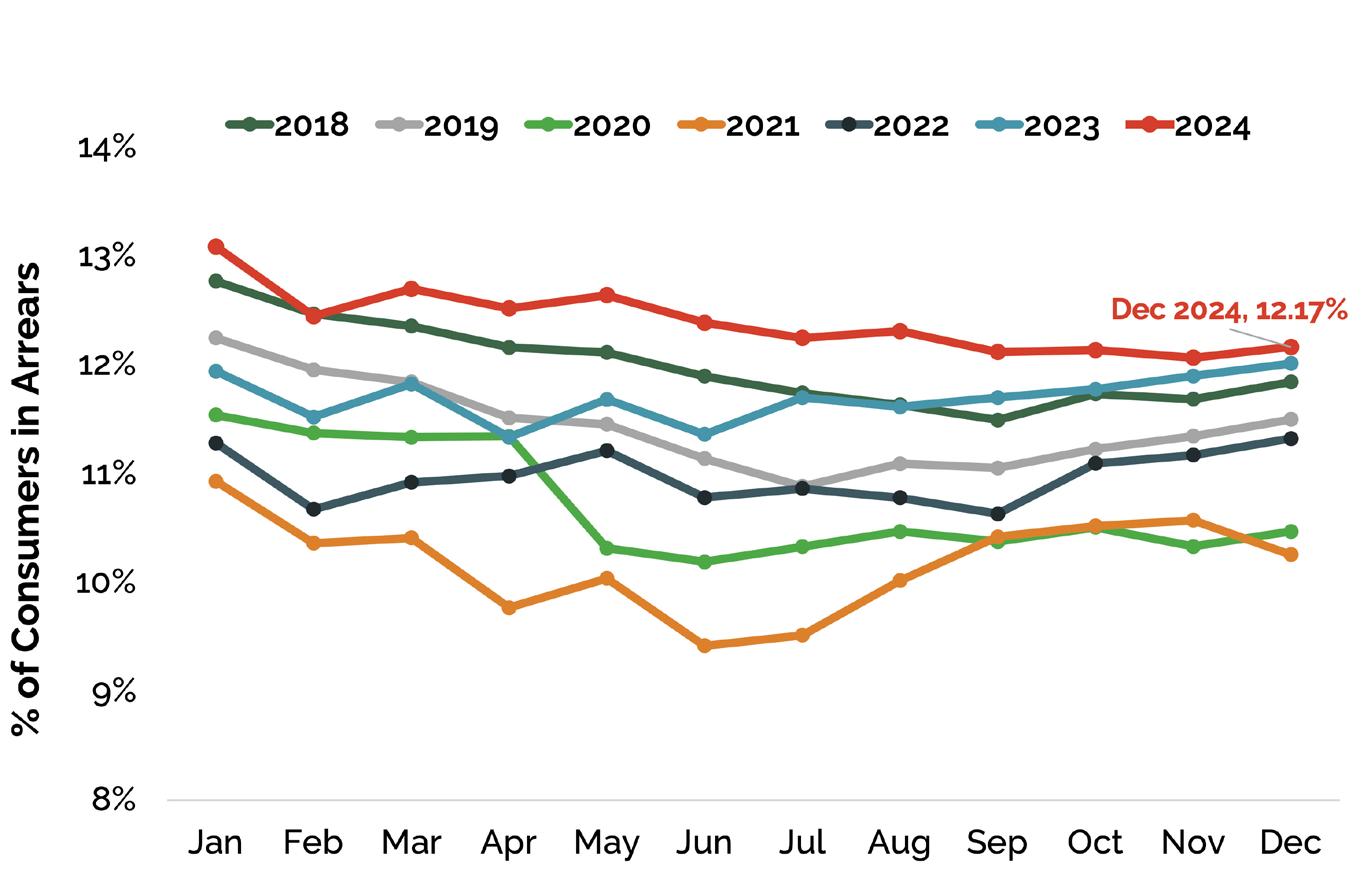
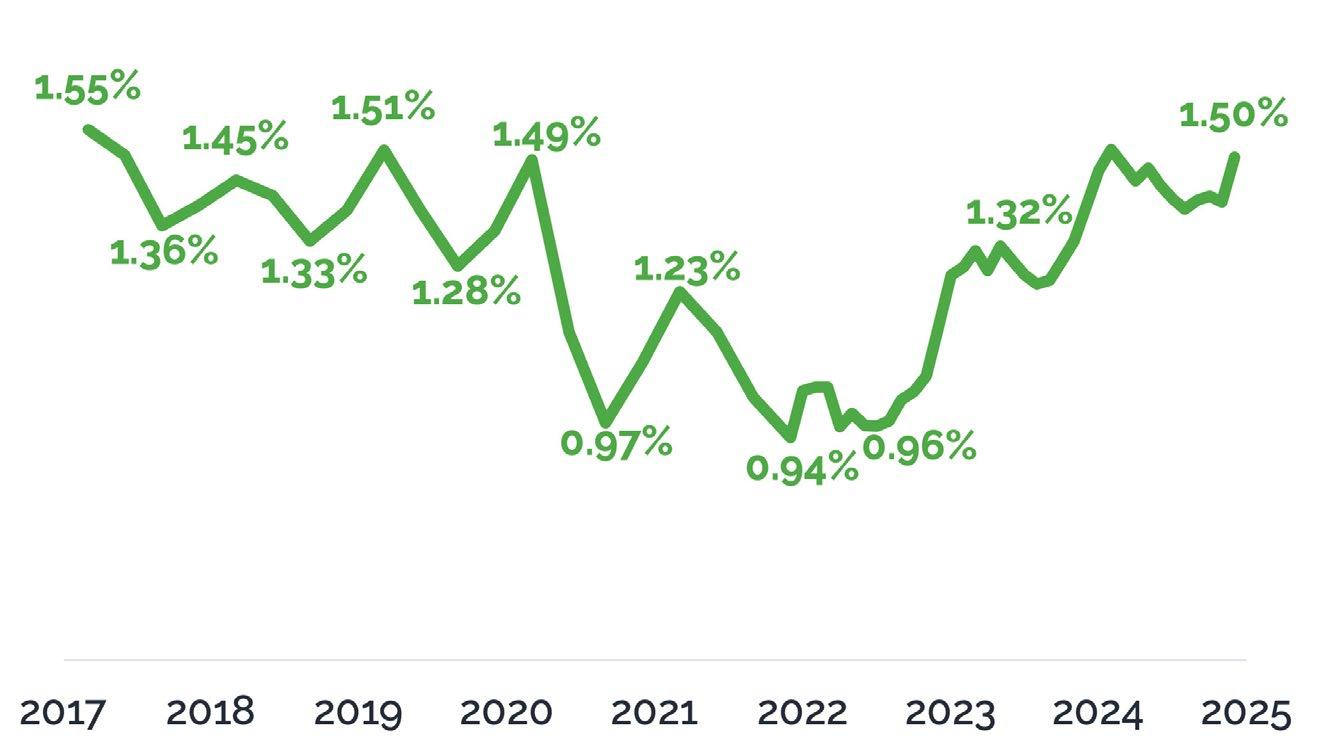


“Financial strain remains evident, with many households and businesses feeling the pressure.”
in arrears rose while financial hardship cases increased 19%, with nearly half tied to mortgage repayments.
Despite these challenges, lending activity continued to increase.
New mortgage lending was up 13.4% year-on-year, supported by lower interest rates and eased lending restrictions. Additionally, non-mortgage lending rose 1.5%, driven by holiday spending on credit cards, vehicle and personal loans, BNPL, and overdrafts.
Businesses faced continued financial stress – particularly in construction, where defaults and liquidations jumped 40% and 41%, respectively.
Residential home builders recorded 235 liquidations over the year. The transport sector also saw a sharp 79% rise in liquidations, with 131 companies affected.
Despite hopes for relief, the economic outlook for 2025 remains uncertain for Kiwi households and businesses.
In line with seasonal trends, arrears are up across all the different categories we measure for the month of December 2024.
General consumer arrears are up 6,000 month on month,
reaching 470,000, equating to a current arrears level 1.3% higher year-on-year. This rate has moderated, however, in recent months. In fact, consumers that are 30+ days in arrears have improved by 5.4% year-on-year.
Mortgage arrears also rose to 1.50% in December, up from 1.41% in November 2024, sitting 7% higher year-on-year.
Meanwhile, credit card arrears rose slightly month-on-month in December, however are 5% lower year-on-year.
Looking at the other specific categories, personal loan arrears also increased in December, to 9.2%, up from 8.1% the month prior – however remained stable year-on-year. BNPL arrears also rose to 8.2% in December, although this remains lower than December 2023 (8.4%).
The number of households behind on retail energy
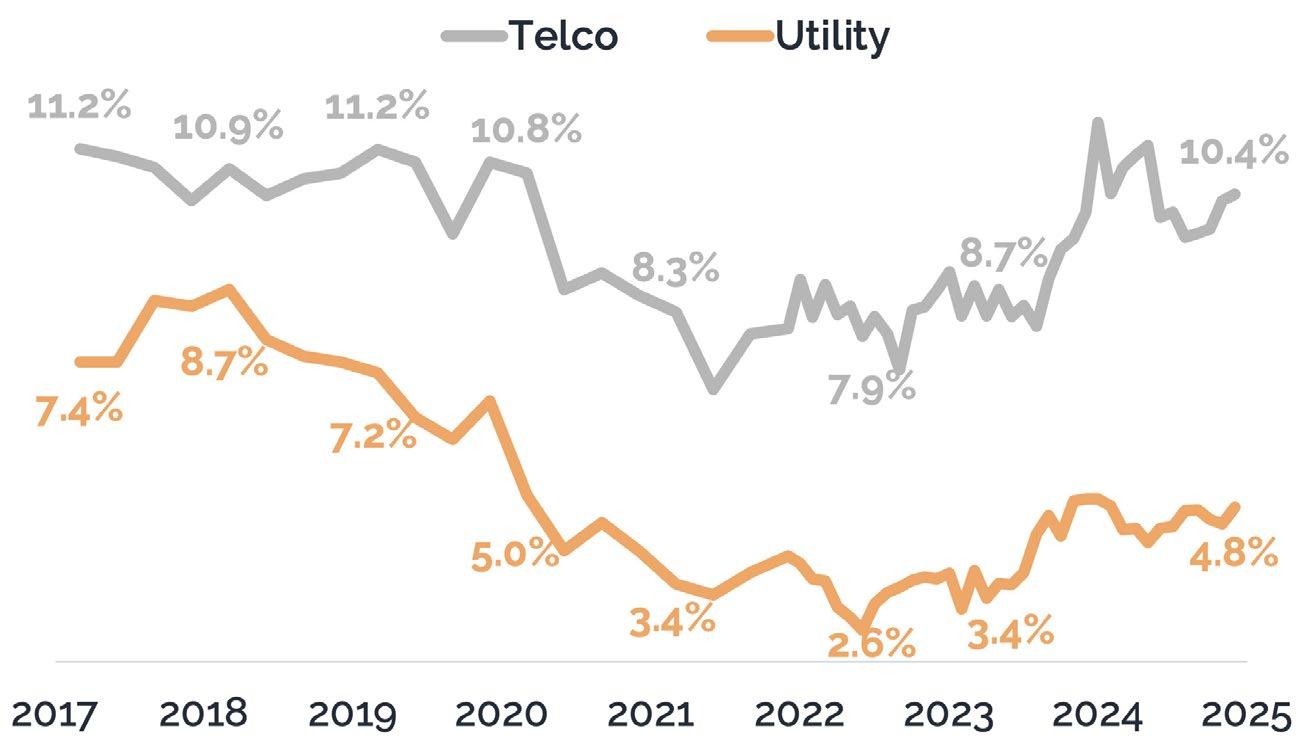


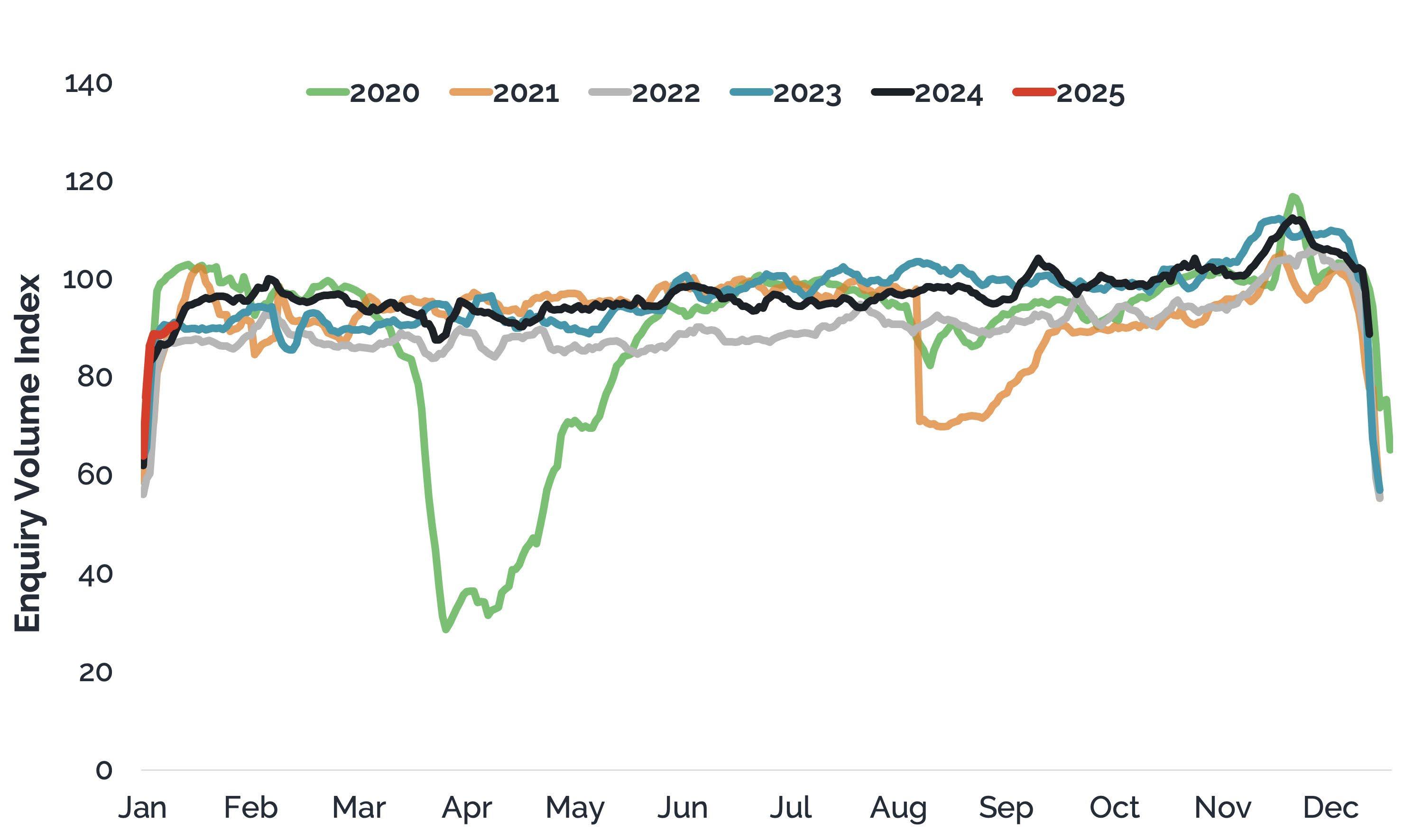
“Consumer credit demand began 2025 1% lower compared to the same period last year. However, festive spending drove increased demand for credit cards, personal loans and BNPL services.”


payments rose slightly month on month to 4.8% in December (3% lower year-on-year), whilst the percentage of telco / communication accounts reported past due was 10.4% in December, up slightly year-on-year.
Credit demand and new approved lending on the rise
Consumer credit demand began 2025 1% lower compared to the same period last year. However, festive spending drove increased demand for credit cards, personal loans and BNPL services.
Examining specific credit demand, credit card demand was up 22% year-on-year, whilst demand for auto loans fell 8.4% in January 2025.
Total new, approved household lending grew 12.4% year-on-year, fuelled by rises in both mortgage and non-mortgage lending.
Financial
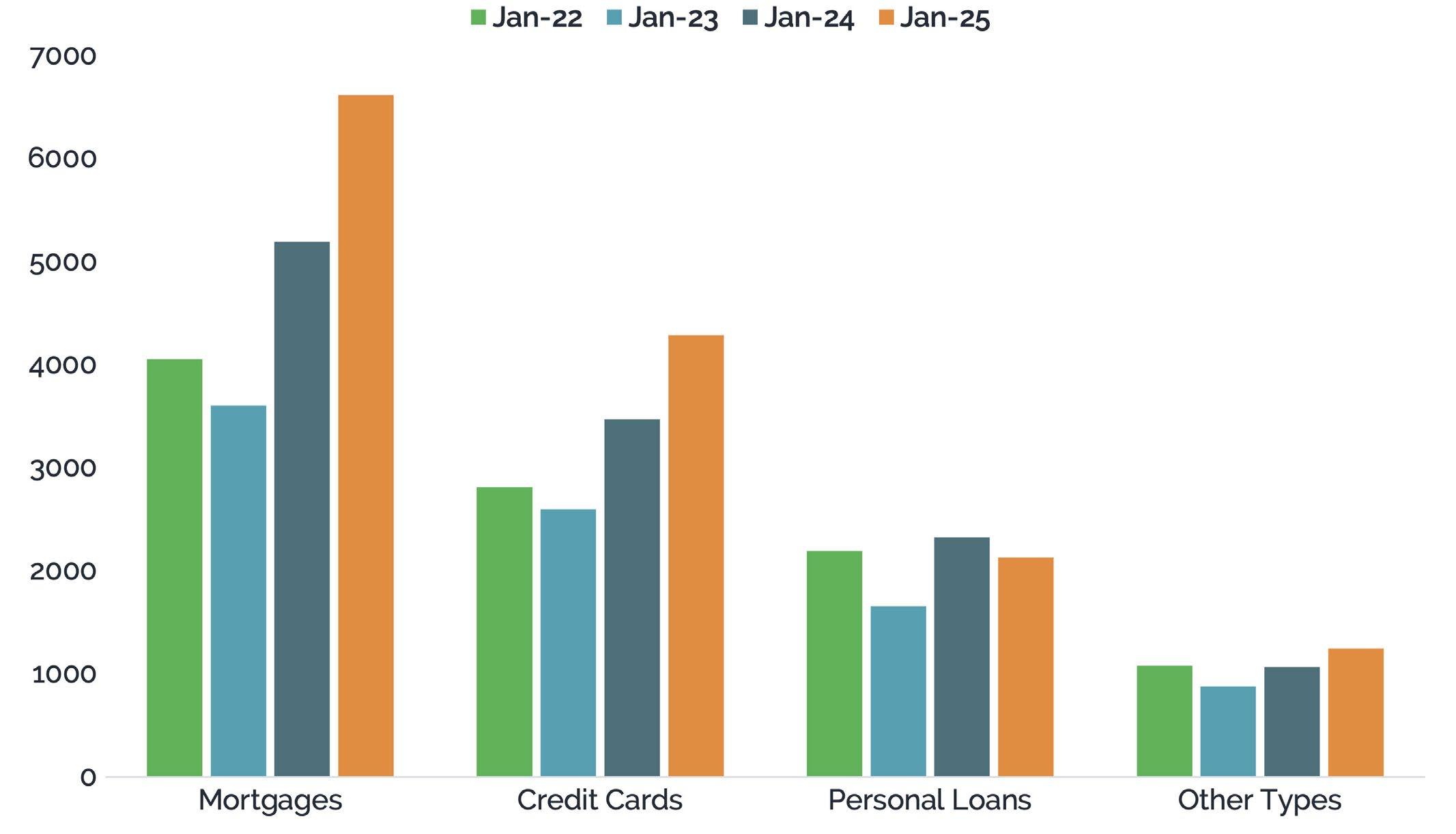
Financial Hardship by Age
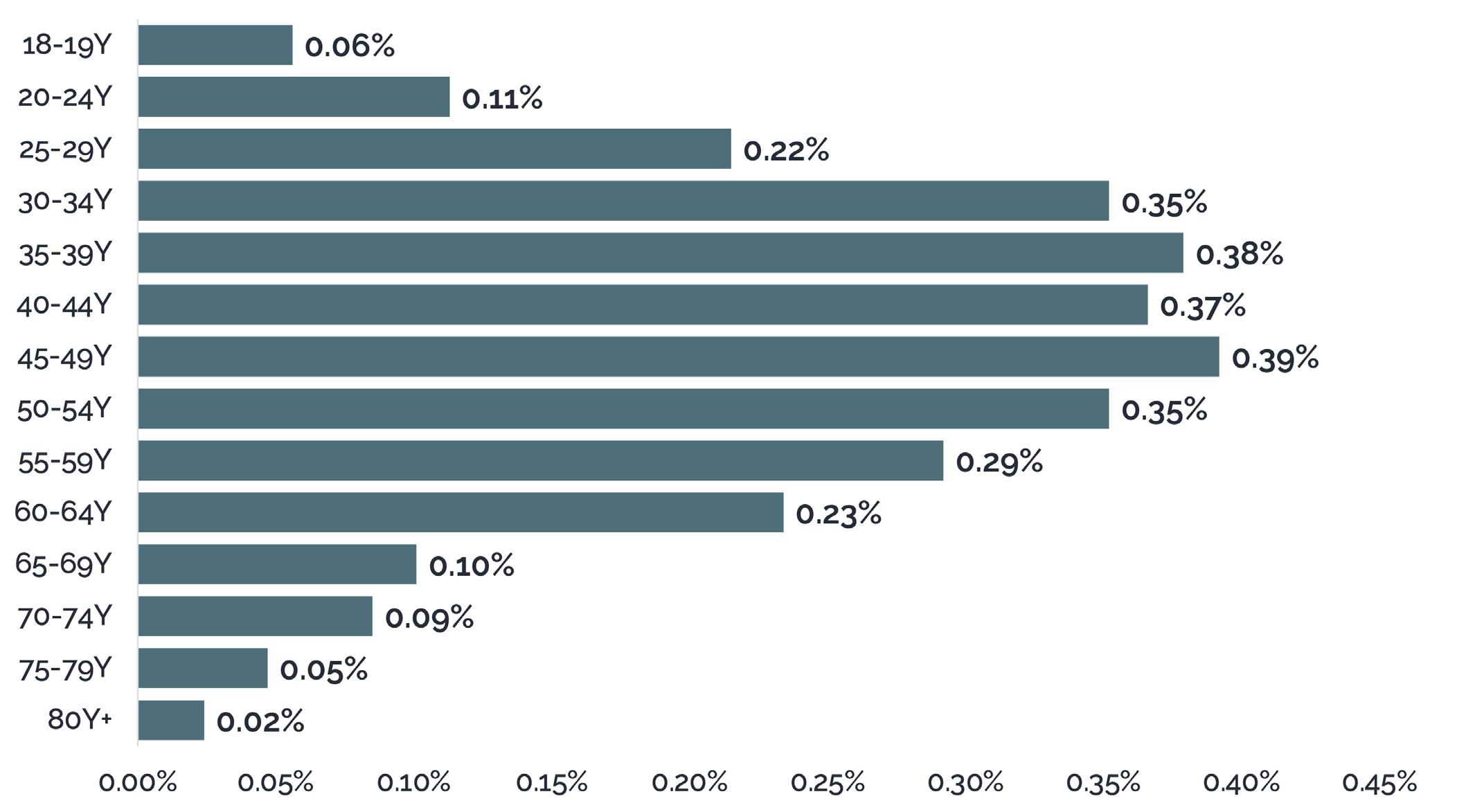
New residential mortgage lending increased 13.4% compared to last year but remains 14% below 2021 levels when the property market was at its peak.
Meanwhile, non-mortgage lending – including credit cards, vehicle and personal loans, BNPL, and overdrafts –rose 1.5% year-on-year, largely due to heightened demand during the holiday spending period.
Rising financial hardship cases point to ongoing consumer hardships
Financial hardship remains a significant issue in the credit landscape. Currently, 14,300 accounts are recorded in
financial hardship, marking a 19% increase from the previous year. Nearly half (46%) of these cases involve difficulties with mortgage repayments.
Additionally, 30% of hardship cases stem from credit card debt, while 15% are linked to personal loan repayments.
The highest financial hardship rates are among individuals aged 35 to 49, an age group more likely to have mortgage obligations.
Kiwi businesses continue to bear the brunt of tough economic conditions
New Zealand businesses are continuing to do it tough in the face of turbulent economic headwinds, with business
credit defaults remaining high year-on-year in December 2024.
The sectors most acutely affected include construction, with credit defaults up 40% year-on-year, and the transport industry, with credit defaults up 36% year-on-year. The retail sector, while impacted, shows the least increase with an 8% rise in credit defaults.
Overall company liquidations increased by 36% year-on-year in December 2024. Construction companies continue to face significant challenges, with nearly 200 building firms liquidated in Q4.
Across the board, residential new home builders, restaurants, and property developers
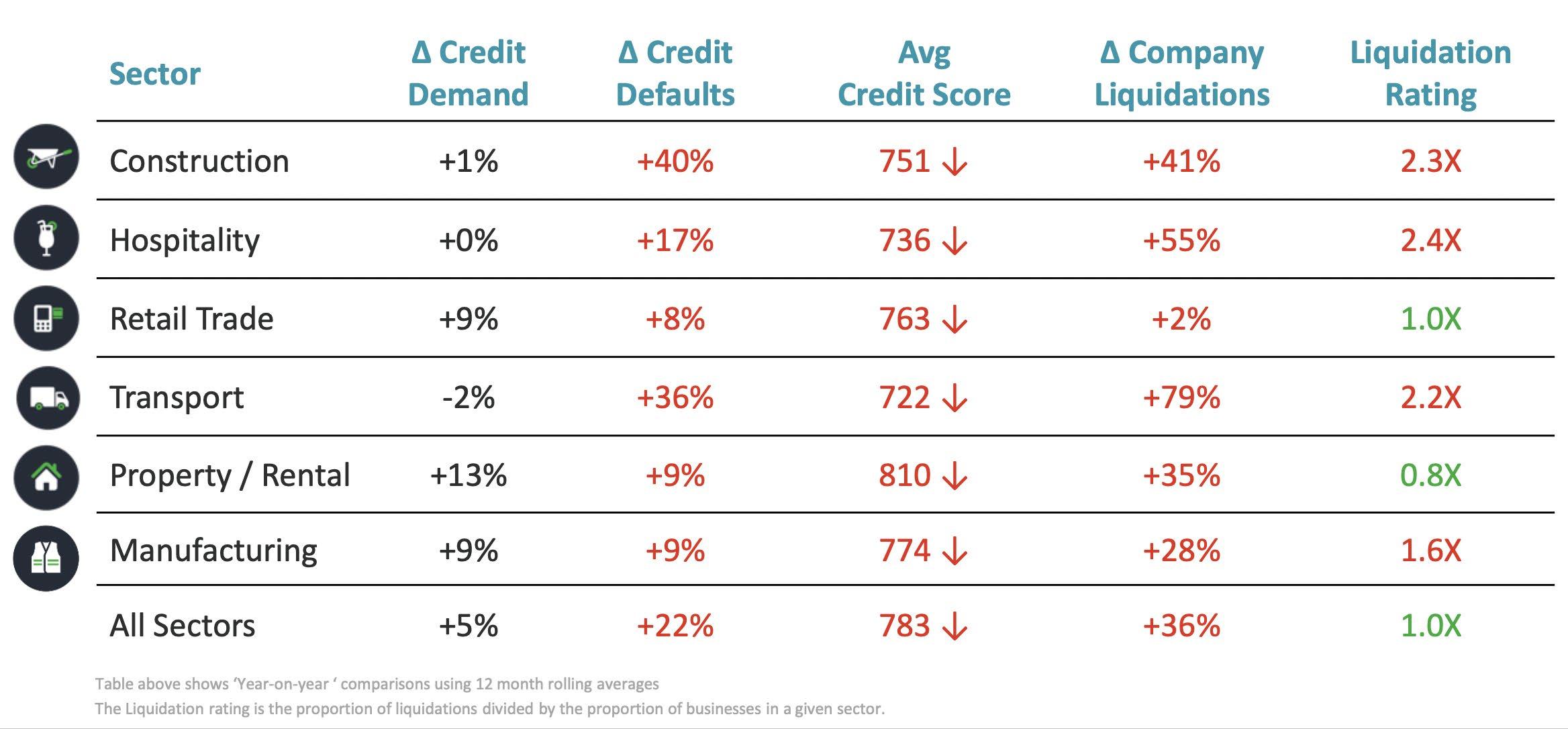
“Overall company liquidations increased by 36% year-onyear in December 2024. Construction companies continue to face significant challenges, with nearly 200 building firms liquidated in Q4.”
have experienced the highest volumes of company collapses during 2024.
This liquidations trend continues to serve as a barometer for the specific economic challenges facing businesses across the country.
While many Kiwis were holding out for economic relief, at this stage it’s unclear exactly what the rest of 2025 has in store for households and businesses.
Looking at the latest credit
trends one thing is clear, some respite would be welcome for many across Aotearoa New Zealand.
*Monika Lacey MICM Chief Operating Officer Centrix Credit Bureau
of New Zealand www.centrix.co.nz
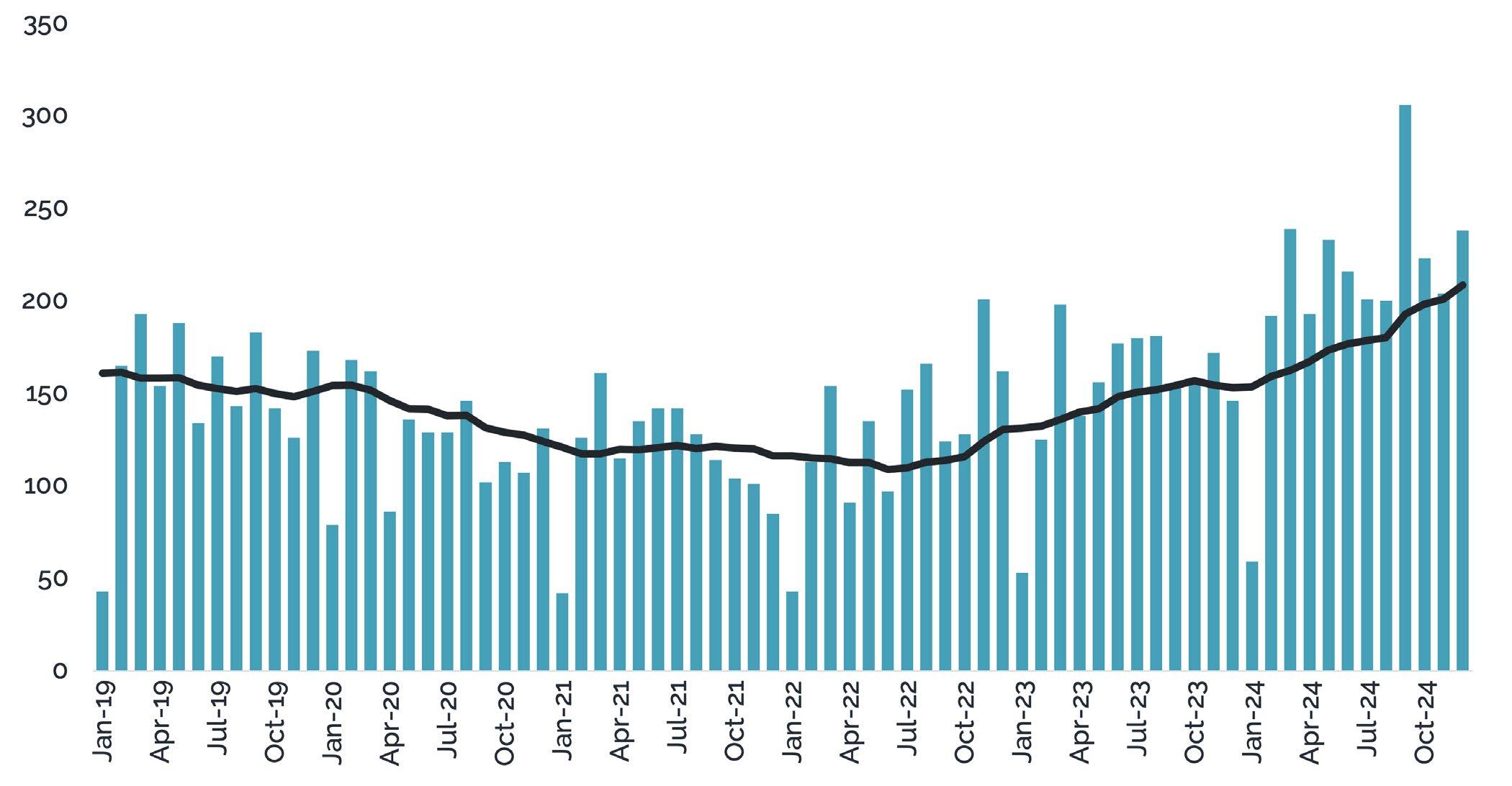

By Ivan Colhoun*
CreditorWatch, has released the January results for its Business Risk Index (BRI), revealing positive signs for Australian businesses at the end of 2024 and early 2025. However, the improvements are likely to be short lived, with the proposed tariff regime of the Trump administration expected to hinder growth, particularly for export-reliant sectors such as manufacturing and transport.
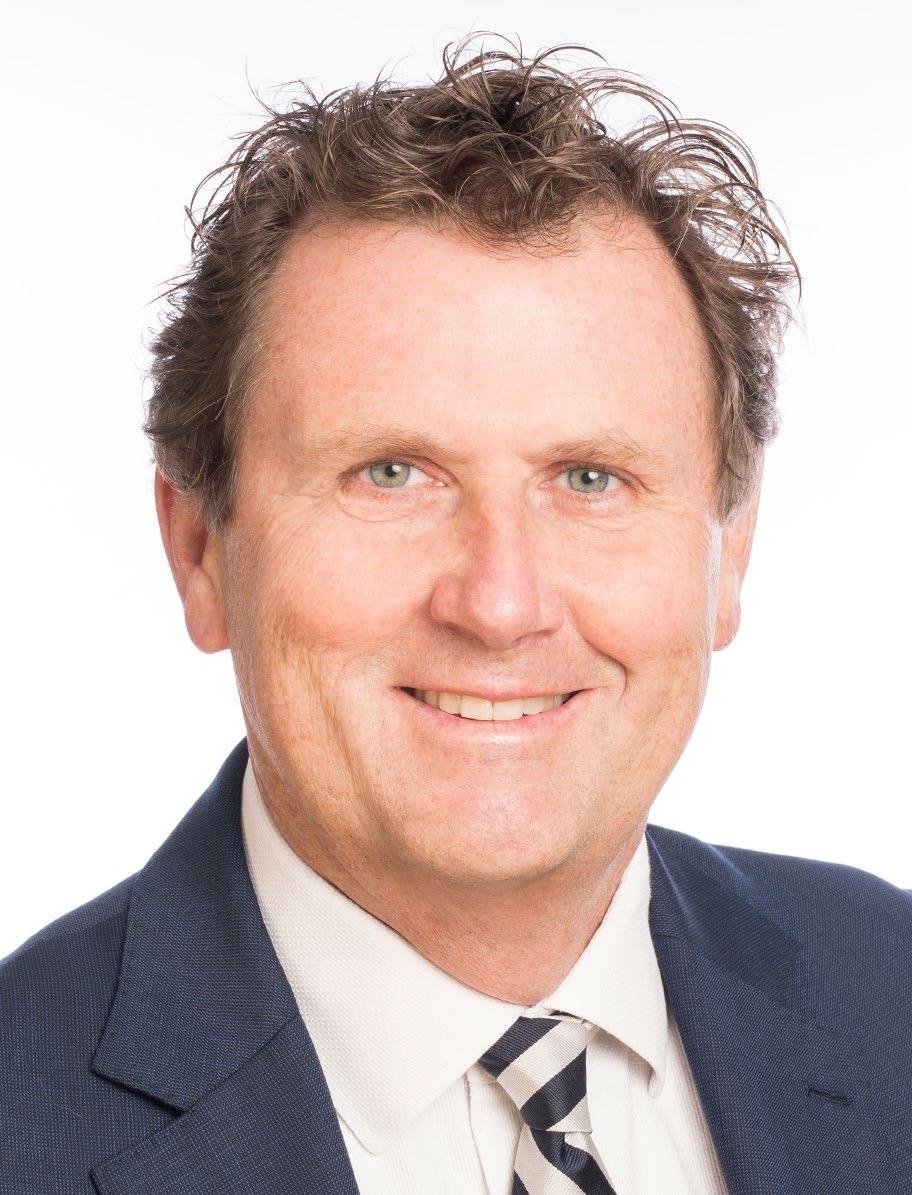
Both CreditorWatch’s proprietary trade payments defaults series (B2B reports of non-payment) and the number of first-time insolvencies reported by ASIC dropped relatively sharply in January, after adjustment for seasonality. Trade payment defaults were at
the lowest level since September last year, while first-time insolvencies were the lowest since February 2024.
After tough conditions during much of 2024, during which insolvencies, late payment times and trade payment defaults all rose, the data suggests Australian businesses had a slightly better end to year.
Positive developments in recent months include a strengthening in retail sales and consumer confidence, likely reflecting the continuing flow-through of the 1 July 2024 tax cuts to the economy, cost of living support and an ongoing strong labour market.
This week’s 25 basis point rate
“Positive developments in recent months include a strengthening in retail sales and consumer confidence, likely reflecting the
continuing flow-through of the 1 July 2024 tax cuts to the economy...
”
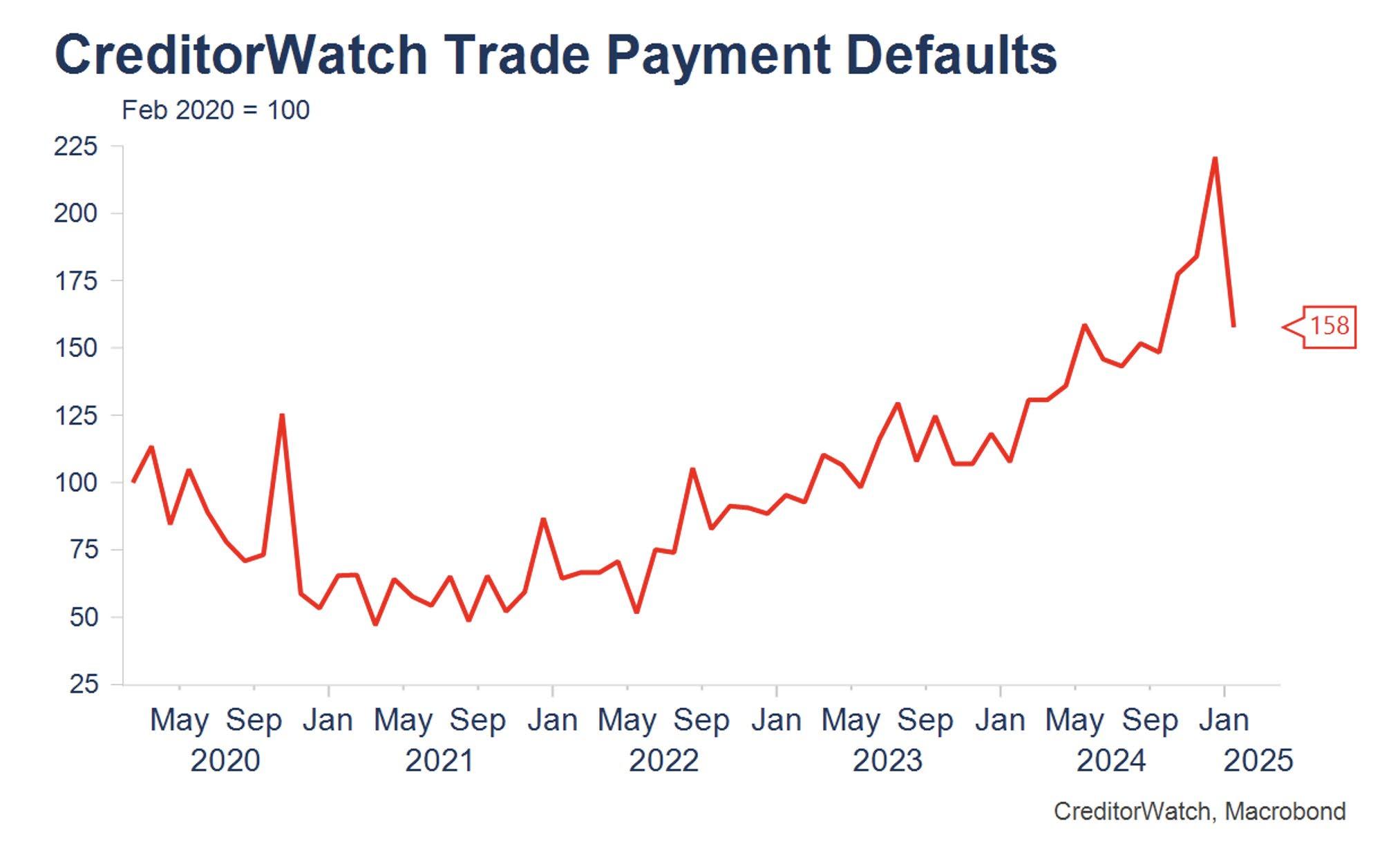
cut to 4.1%, the first in five years, will also benefit both consumers and businesses. Despite these positive developments, and a moderation in the rate of inflation, the cost of living for consumers, and of trading for businesses, has not dropped. This will therefore continue to be a pressure for many and is expected to keep insolvencies near recent highs in the near term.
This, of course, is all before the impacts of President Trump’s tariff policies are felt by Australian businesses – and businesses across the globe.
Tariffs – to the extent they are implemented on any country’s goods – act to raise prices for the levying country’s consumers and businesses
(initially in a one-off way) and reduce demand for the foreign producer’s goods in favour of boosting domestic production. The currency of the country levying the tariff tends to increase and the foreign country’s currency tends to fall.
President Trump’s proposed tariff regime is extremely broad, with very high tariff rates. If large and broad-based tariffs are enacted for an extended period (still to be seen), the impact will be higher prices in the US, a stronger US dollar and some switch to domestic production. Other countries will see a reduction in demand for their goods from the US and face weaker currencies.
It is hoped that Australia will avoid much of the direct tariff imposition given we have a trade deficit with the US and are a
strong ally in the Pacific region. This, however, doesn’t mean that we won’t see the goods of other tariffed countries ending up in our markets, potentially at lower prices, and of course the Australian dollar would remain generally weaker in this scenario. Supply chains and trade flows may also reroute significantly over time, potentially adding to shipping costs. All of this has the potential to create additional pressure on manufacturing, wholesale and transport businesses, not to mention the inconvenience for business owners.
It’s too early to be definitive on the scale of the impact because the policies are still being rolled out, however they are generally expected to add to uncertainty and costs at the expense of weaker growth.
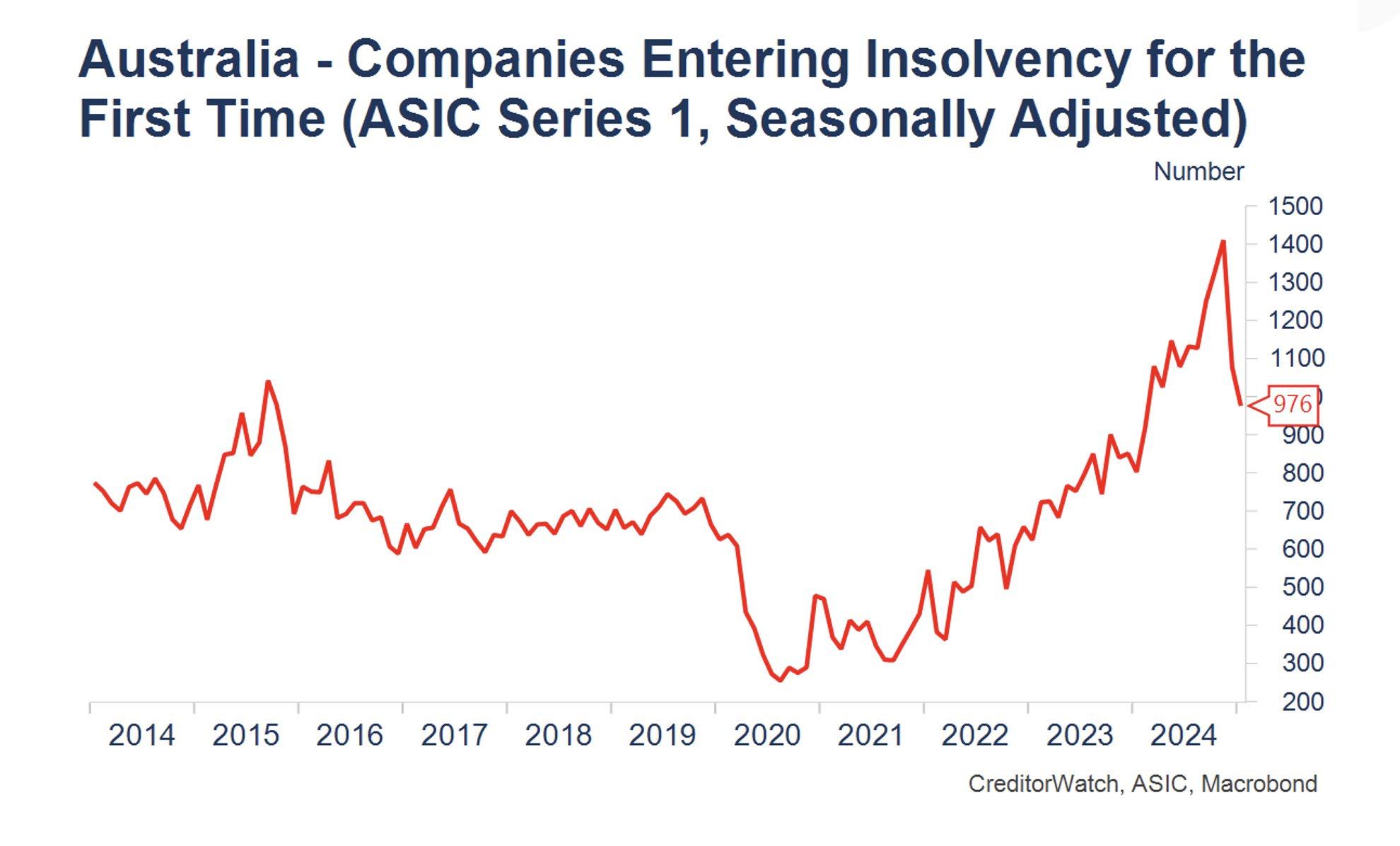
The RBA and economists are forecasting a near perfect soft landing for the economy this year. Inflation should moderate sufficiently to allow interest rates to be reduced moderately, which in turn should see growth pick up modestly and ensures the unemployment rate remains very low by historical standards.
Slower population growth, as a result of the government’s policies on foreign students and migration, is likely to act as a drag on growth against the positives of lower interest rates and continuing flow through of the July 2024 tax cuts into the economy.
As noted earlier, the largest uncertainty for businesses and the economic outlook is the effects of Mr Trump’s policies,
“...the largest uncertainty for businesses and the economic outlook is the effects of Mr Trump’s policies, especially his proposed major imposition of tariffs very broadly.”
especially his proposed major imposition of tariffs very broadly. These have the potential to slow growth globally and raise prices in the US, preventing or delaying further interest rate cuts there. They could even reverse previous cuts if inflation re-accelerates in a sustained way.
Supply chains and shipping costs could be significantly impacted, while other major countries might divert some goods subject to US tariffs to other markets including
Australia at discount prices for a time. Overall, added uncertainty and, potentially, cost increases are the likely outcomes if the proposed widescale tariff policy is enacted. That will add additional pressures on some businesses especially in the manufacturing sector.
*Ivan Colhoun Chief Economist CreditorWatch
E: ivan.colhoun@creditorwatch.com.au www.creditorwatch.com.au

By Neill Borg MICM*
Introduction

This white paper explores the growing significance of Environmental, Social, and Governance (ESG) factors in credit risk management. As financial markets evolve, ESG considerations are becoming essential for assessing corporate creditworthiness. The transition from voluntary ESG practices to mandatory climate-related disclosures in Australia marks a pivotal shift. This paper examines the development of ESG frameworks, their impact on risk assessments, and the regulatory landscape shaping the future of credit decisioning.
As climate change and social responsibility gain prominence, investors and lenders are increasingly scrutinising companies’ environmental, social, and governance (ESG)
practices. Once an abstract concept confined to activist circles, ESG has evolved into a critical factor in assessing business creditworthiness. ESG scoring now offers lenders a broader risk profile to consider alongside traditional financial metrics. With mandatory climate-related disclosures on the horizon in Australia, credit risk management is poised for a significant transformation.
Character, one of the 5 Cs of Credit, has traditionally been assessed through a borrower’s reputation, integrity, and track record of financial responsibility. However, in today’s evolving financial landscape, ESG factors are becoming a key extension of character, providing a deeper understanding of a borrower’s ethical and sustainable business practices. Creditors are increasingly recognising that a company’s commitment to ESG principles reflects its long-term stability, risk profile, and overall trustworthiness.

Businesses that prioritise sustainability – such as reducing carbon emissions, managing waste responsibly, and adhering to climate policies -demonstrate forward-thinking governance that mitigates operational and financial risks. Social responsibility, including fair labour practices, diversity and inclusion, and community engagement, speaks to the ethical foundation of a company, reinforcing its reliability as a borrower. Strong governance, characterised by transparency, anti-corruption policies, and regulatory compliance, directly impacts how a creditor perceives a business’s integrity.
Originating in the 1990s through the efforts of activists, nongovernmental organisations (NGOs), and socially responsible
“As climate change and social responsibility gain prominence, investors and lenders are increasingly scrutinising companies’ environmental, social, and governance (ESG) practices.”
investors, ESG frameworks initially aimed to exclude businesses whose operations conflicted with ethical values. Over time, stakeholders recognised that ESG factors could positively influence financial performance, particularly in markets prioritising sustainability and ethical practices.
The 2015 adoption of the United Nations’ 17 Sustainable Development Goals (SDGs) marked a pivotal moment for ESG’s global adoption. These goals offered businesses a framework to address global challenges such as poverty,
inequality, and environmental degradation. ESG gained further traction as major credit rating agencies like Moody’s, S&P, and Fitch began incorporating ESG-related assessments into their credit ratings. This shift allowed lenders to evaluate risk holistically, considering environmental impact, human rights, and corporate governance.
In Australia, regulatory focus on ESG has intensified. Starting 1 January 2025, many large Australian businesses will be required to produce mandatory climate-related disclosures under new government standards. Based on the International
Sustainability Standards Board (ISSB) framework, these measures aim to enhance corporate transparency around climate risks and opportunities. The Australian Securities and Investments Commission (ASIC) has emphasised that climaterelated risks are not only environmental concerns but also material financial risks relevant to investors and lenders.
ESG scores evaluate a company’s impact in three core areas: environmental, social, and governance. These scores reflect factors such as environmental
footprint, employee and community treatment, and corporate governance integrity. Specific metrics can include carbon emissions, board diversity, employee wages, and executive pay.
The World Economic Forum’s ESG metrics are grouped into four categories:
l Governance
l Planet
l People
l Prosperity
Despite their potential, ESG scores face challenges, particularly the lack of standardisation. Different organisations and rating agencies use varying methodologies, leading to
inconsistencies. However, mandatory reporting requirements like those in Australia are expected to drive standardisation, improving the quality of ESG data. These disclosures will require businesses to report climaterelated risks, greenhouse gas emissions, and strategies to address these issues, providing creditors with consistent and reliable information to evaluate environmental risk.
and Credit Risk: A Growing
Incorporating ESG factors into credit assessments has profound implications for risk management. ESG scores help
“Incorporating ESG factors into credit assessments has profound implications for risk management. ESG scores help businesses identify risks not apparent through traditional credit and financial analysis.”
“With mandatory climate reporting in Australia and similar initiatives globally, ESG’s role in assessing financial stability and long-term viability will only grow. Businesses must adapt to these evolving expectations...”
businesses identify risks not apparent through traditional credit and financial analysis. For instance, a company with a poor environmental record may face regulatory fines, reputational damage, or operational disruptions, all of which can impact debt repayment. Similarly, a company neglecting social issues like human rights or employee satisfaction might encounter workforce instability, affecting productivity and financial health.
Mandatory climate disclosures will enhance these assessments by ensuring companies report their exposure to climaterelated risks and opportunities transparently. This will help creditors identify companies well-prepared for the lowcarbon economy transition and flag those facing significant challenges. For instance, businesses heavily reliant on fossil fuels or with poor environmental practices may struggle to secure credit as businesses incorporate longterm risks into their evaluations.
While ESG scores offer valuable insights into a company’s long-term viability, they should complement, not replace, traditional practices. Credit professionals must continue to assess financial health, market trends, and operational stability alongside
ESG factors. For example, a company with a high ESG score may still face financial challenges due to mismanagement or adverse market conditions.
The future of ESG in credit risk management will likely feature increased regulation and standardised reporting. Initiatives like Australia’s mandatory climate-related disclosures aim to prevent “greenwashing” and ensure ESG data accurately reflects risks and opportunities. Standardised frameworks will provide credit professionals with reliable and comparable data for informed decision-making.
Globally, governments and regulatory bodies are driving the establishment of common ESG standards. In Australia, ASIC’s recognition of climate-related risks as material financial risks underscores the importance of addressing ESG factors. These mandatory disclosures, aligned with international standards, are expected to serve as models for other jurisdictions, accelerating global transparency and standardisation.
As ESG becomes integral to credit risk analysis, businesses failing to meet expectations may face significant challenges. Such companies risk exclusion from financing opportunities, higher
capital costs, and reputational damage. Conversely, businesses embracing sustainability and social responsibility are better positioned for long-term success.
ESG has transitioned from a niche concern to a fundamental component of credit risk management. With mandatory climate reporting in Australia and similar initiatives globally, ESG’s role in assessing financial stability and long-term viability will only grow. Businesses must adapt to these evolving expectations, and credit professionals must integrate ESG factors into traditional risk frameworks.
As regulation and standardisation improve, ESG will increasingly shape access to finance and risk evaluation. Integrating ESG into credit assessments enables financial professionals to navigate the evolving landscape responsibly. For businesses, adapting to ESG expectations is no longer optional – it is essential for securing capital and ensuring sustainable growth.
*Neill Borg MICM Country Manager – AU DecisionOK
T: +61 401 066 624
E: neill.borg@credisense.io www.decisionok.com.au


In 2025 we celebrate a remarkable milestone – 10 years of impact and positive change for the Women in the Credit community!
By Debbie Leo MICM, General Manager Sales, Corporate Accounts, Equifax

Since its inception, I have been proud to sponsor the Women in Credit series with my employer, Equifax. Reflecting on the journey thus far fills me and the Equifax team with pride for the progress we have made and the positive changes we have achieved.
In 2025, we celebrate a remarkable milestone – 10 years of impact and positive change for the Women in Credit community. Our theme, “Celebrating 10 Years of Impact,” encapsulates our journey and achievements over this period.
We have been united by a shared vision: empowering, uniting, educating, and creating lasting impact in the lives of our Women in Credit community, while supporting fabulous charities with women at the forefront. Together, we have shown that when passion meets purpose, extraordinary things can happen.
We celebrate not only the successes of the past years but also the incredible people – like you – who have made this journey possible. A special thank you to our supporting sponsors, Anna Taylor from Results, and Lisa Plag from

NCI, as well as the wonderful Councils and WINC committee who make this success possible.
As we look back at the lives touched and the barriers broken, we also look forward – with excitement and renewed commitment. Here’s to a decade of difference – and to many more to come!
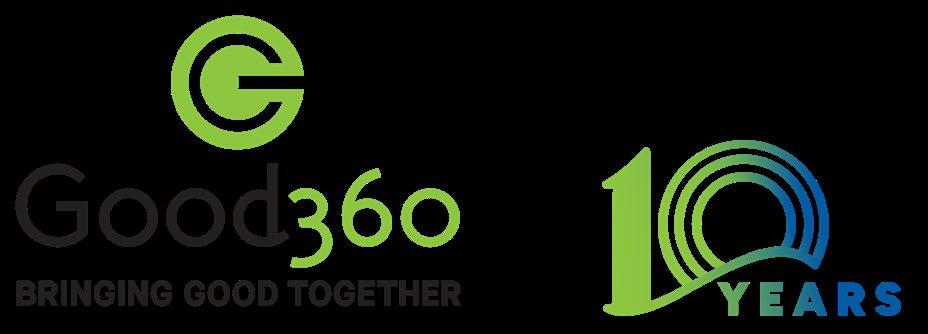
Good360
AICM is proud to announce that Good360 Australia is our charity partner for 2025. This year, both Good360 and AICM’s Women In Credit (WINC) initiative are celebrating 10 years of making a meaningful impact – an exciting milestone that makes this partnership even more significant.
Good360 is focused on connecting businesses with surplus goods to people in need. By working with charities, disadvantaged schools, and vulnerable communities across Australia, they redistribute unsold, excess, or disaster recovery goods, helping reduce waste and supporting people facing hardship.
Save the date: WINC Luncheons
VIC 2025 Women in Credit Luncheon
16 May 2025
RACV City Club, 501 Bourke Street, Melbourne VIC 3000
TAS 2025 Women in Credit Luncheon
23 May 2025
Bellerive Yacht Club, 64 Cambridge Rd, Bellerive TAS 7018
WA 2025 Women in Credit Luncheon
6 June 2025
Doubletree Hilton, Waterfront, 1 Barrack Square, Perth WA 6000
SA 2025 Women in Credit Luncheon
20 June 2025
Kooyonga Golf Club, May Terrace, Lockleys, South Australia
NSW 2025 Women in Credit Luncheon
18 July 2025
Strangers Room, NSW Parliament House, 6 Macquarie Street, Sydney
QLD 2025 Women in Credit Luncheon
22 August 2025
Rivershed and Deck, Howard Smith Wharves, 5 Boundary Street, Brisbane City, Qld 4000
Good360 Australia is proud to be named the Australian Institute of Credit Management’s (AICM) charity partner for 2025.
This year, both Good360 and AICM’s Women in Credit (WINC) initiative are celebrating 10 years of making a meaningful impact – an exciting milestone that makes this partnership even more significant.
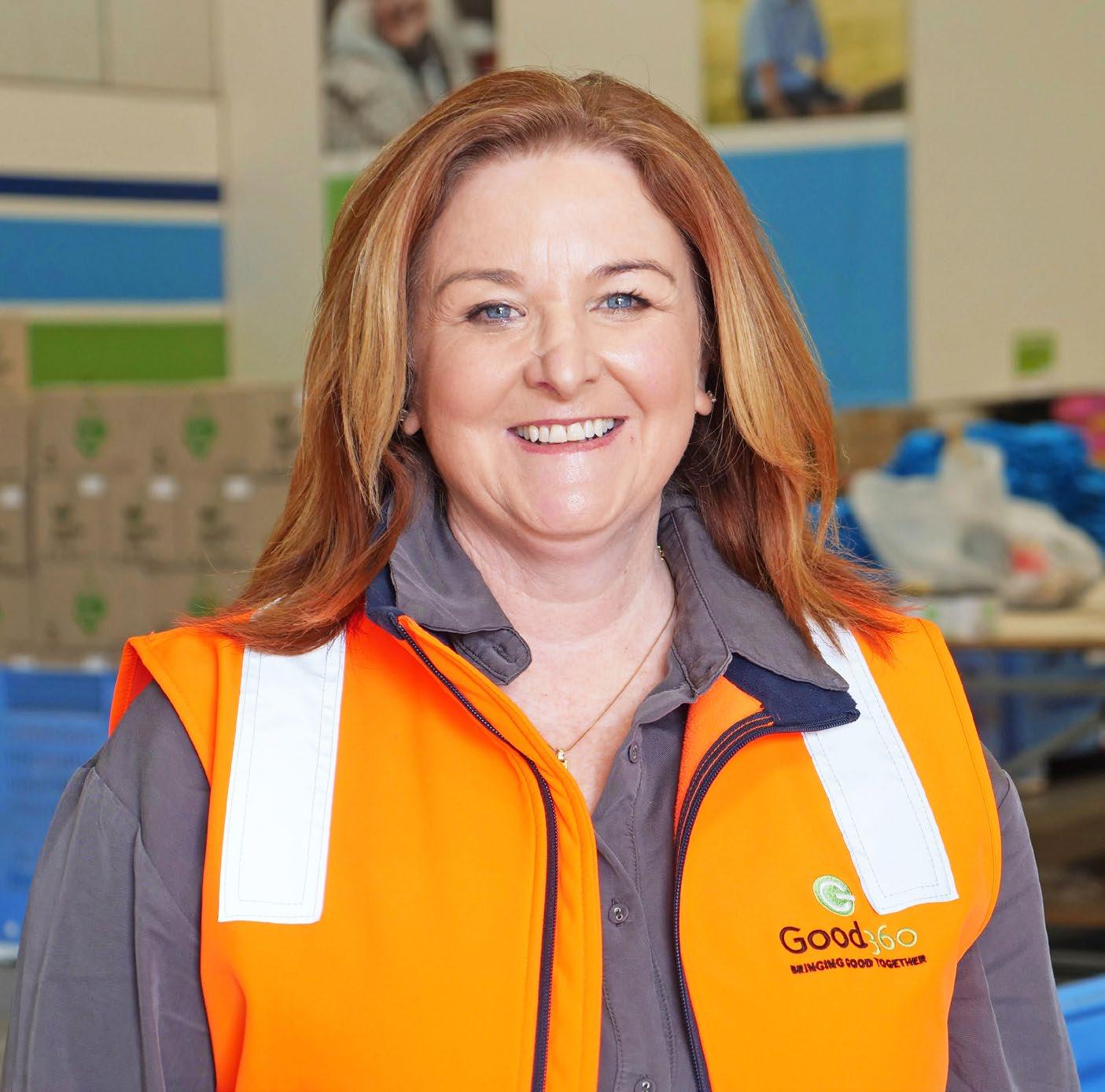
Who is Good360 Australia?
Good360 is a not-for-profit focused on connecting businesses with surplus goods to people in need. By working with charities, disadvantaged schools, and vulnerable communities across Australia, we redistribute unsold, excess, or disaster recovery goods, helping reduce waste and supporting people facing hardship.
Our mission is simple: ensure that surplus goods and services of businesses reach people in need, rather than being wasted or sent to landfill. The result is a “Circle of Good” that reduces both need and waste, benefiting people and our planet.
Founded in 2015 by Alison Covington AM, Good360 Australia was inspired by the US based model, which has been operating since 1983. Alison discovered the concept in 2012 and was struck by its potential. “The Good360 model ticked all the boxes for me,” says Alison. “It was innovative, efficient, technologically advanced and could make a real difference

“Our mission is simple: ensure that surplus goods and services of businesses reach people in need, rather than being wasted or sent to landfill. The result is a “Circle of Good” that reduces both need and waste, benefiting people and our planet.”
in Australia. It allowed me to leverage my corporate skills for a cause that could support everyone.”
Why we do what we do: reducing need and waste
In Australia, a staggering $2.5 billion worth of household goods are wasted each year, according to a Deloitte Access Economics report commissioned by Good360 Australia. At the
same time, 1 in 8 Australians live below the poverty line, and the rising cost of living is putting more people into financial distress, creating greater need.
How we make a difference Good360 provides a smart solution to surplus inventory by helping businesses redirect excess goods to people in need. Goods range from seasonal stock, outdated branding, to
items with minor packaging damage – all of which are still fit for purpose. These products include clothing, homewares, hygiene items, toys, games, and even digital devices. By reducing waste and supporting people in need, Good360 helps create a circular economy, ensuring that products are used as long as possible while meeting the needs of vulnerable communities.
Since launching in 2015, Good360 has partnered with leading Australian brands to distribute over 43 million new items to 4.6 million people across four key areas of need: Education, Home, Hygiene, and Play. With a network of over 4,700 registered charities and disadvantaged schools, including Domestic Violence, Homelessness and


Mental Health, we ensure that these essential goods reach the right people, at the right time.
Alison’s leadership has been instrumental in Good360’s growth. In 2021, she was recognised with several prestigious awards, including Western Sydney Woman of the Year and NPF’s Third Sector CEO of the Year. In 2022, she was appointed a Member of the Order of Australia (AM) for


“Since launching in 2015, Good360 has partnered with leading Australian brands to distribute over 43 million new items to 4.6 million people across four key areas of need: Education, Home, Hygiene, and Play.”
her service to social welfare and sustainability, and in 2024, she received the Jennifer Westacott AO Woman of Western Sydney Award.
Reflecting on the last decade, Alison says, “It’s been a journey of hard work, collaboration, and learning, but we’re changing the way people think about giving.”
Looking to the future, Good360 remains committed to creating a country where nothing goes to waste and everyone has access to the essentials they need. There is plenty to go around, and we believe that by working together, we can make a meaningful difference. You can join our Circle of Good by donating surplus goods, volunteering, or making a financial contribution. Every $1 donated delivers $20 worth of goods for people in need.
Don’t miss the opportunity to hear Alison speak at your local Women in Credit (WINC) event in the coming months. Alison’s story of turning passion into action is a powerful reminder of what we can achieve when we come together to make a difference. She will inspire you to take action in the communities where you live and work, challenge the status quo, and show how each of us has the power to create positive change. Join us and discover how you can play a part in building a more sustainable, supportive future –for people and our planet.
Find out more about Good360 Australia by visiting our website at good360.org.au

By Alex Caruana MICM*
Debt collection in Australia has evolved significantly over the past few decades, shaped by the changing needs and expectations of different generations. From Generation X to Generation Alpha, shifts in technology, economic conditions, and regulatory frameworks have driven major transformations in how debt recovery is approached. This article explores the journey of debt collection through each generation.

GENERATION X AND EARLY MILLENNIALS: THE 1980s AND 1990s
The 1980s and early 1990s were challenging economic times for Australia, marked by periods
of high inflation, interest rates, and recessions. In the 1981-1982 recession, rising unemployment put pressure on households, resulting in increased debt defaults. By the mid-1990s, the economy began to recover, driven by consumer spending, but with that came a rise in household debt, particularly from credit cards.
In the 1980s, debt collection heavily relied on traditional communication channels, such as landline phone calls and written letters. Demand letters were frequently used to formalise debt recovery, often delivered by post. Field agents were commonly dispatched for in-person visits, particularly for larger debts or unresponsive
“From Generation X to Generation Alpha, shifts in technology, economic conditions, and regulatory frameworks have driven major transformations in how debt recovery is approached.”

“In the 1980s, debt collection heavily relied on traditional communication channels, such as landline phone calls and written letters. Demand letters were frequently used to formalise debt recovery, often delivered by post.”
customers. Debt collection technology was still basic, relying on manual processes like typewriters and manual dialling for phone calls.
As Australia entered the 1990s, technology began to shift. While phone calls and letters remained the primary methods of communication, the rise of early mobile phones and email started to change how debtors were contacted. Field agents continued to be used for large or critical debts, and outsourcing debt collection to specialised agencies grew in popularity. By the end of the
90s, fax machines began to decline in use as newer digital methods, including early CRM systems and automated diallers, took hold.
The late 1980s saw the introduction of basic computer systems and early databases for tracking debts, though paper-based systems were still prevalent. The Privacy Act 1988 introduced important guidelines for handling personal information, influencing how debt collectors stored and
managed customer data. The establishment of the Australian Collection Services Association (ACSA) in 1983 formalised ethical standards within the industry. By the 1990s, debt collection technology had improved. Simple databases and CRM systems became widespread, allowing agencies to automate some processes, such as dialling and managing communication. The Trade Practices Act saw amendments throughout the 90s, with more formal consumer protection measures and state-based licensing for debt collection agencies.
During both the 1980s and 1990s, debt collection practices were assertive, often prioritising swift recovery. Legal action or repossession was common for larger debts, especially in sectors like automotive finance and commercial debt. In the 1990s, this aggressive approach continued, with legal action escalating quickly for larger accounts. However, by the end of the decade, hardship arrangements started to surface in sectors like utilities and banking, acknowledging the need for more flexibility in handling customer financial difficulties.
The 2000s brought economic growth in Australia, but the Global Financial Crisis (GFC) in 2008 led to a surge in defaults and financial hardship. Many consumers faced unemployment or reduced incomes, highlighting the need for more empathetic and flexible debt collection strategies. In response, tighter regulations were introduced to protect vulnerable consumers from overly aggressive debt recovery practices.
The 2000s saw a shift in how debt collectors communicated with customers. Email and SMS became the primary methods of contact, especially for younger generations like Millennials, who were more comfortable with digital communication.
Phone calls were still important, but digital tools, such as online portals, began to replace traditional methods for initial contact and payment arrangements. SMS became a popular tool to reach hard-tocontact customers and prompt payments, and while field agents were still used, they were typically reserved for high-priority accounts.
“The 2000s brought economic growth in Australia, but the Global Financial Crisis (GFC) in 2008 led to a surge in defaults and financial hardship. Many consumers faced unemployment or reduced incomes, highlighting the need for more emphathetic and flexible debt collection strategies.”
The rise of advanced computer systems, the internet, and customer relationship management (CRM) software allowed debt collection agencies to operate far more efficiently. Data analytics began playing a role in debt collection, helping agencies target customers more effectively and improve recovery rates. Debt collection portals and selfservice platforms emerged, allowing customers to manage their accounts and make payments online.
Following the GFC, the National Consumer Credit Protection Act 2009 introduced stricter regulations around responsible lending and debt collection practices. Debt collectors were required to offer
flexible repayment options to customers facing hardship. The Australian Competition and Consumer Commission (ACCC) and the Australian Securities and Investments Commission (ASIC) increased their oversight, ensuring transparency and fairness in debt collection practices.
Debt collection strategies in the 2000s shifted toward negotiation and flexibility. Many agencies began offering hardship programs to help struggling customers manage their obligations. Automation became widely adopted for routine communication, with automated messages and payment reminders becoming standard practice. The aggressive legal tactics of earlier decades became less common, as agencies were encouraged to work with customers to find manageable solutions.
AND GENERATION Z: THE 2010s
Australia experienced steady economic growth and low interest rates throughout much of the 2010s, but high household debt remained an ongoing challenge. New credit products, such as Buy Now Pay Later (BNPL) services, emerged, introducing more complex types of consumer debt that required new strategies in debt recovery. The gig economy also became prominent,

“Technological advances like artificial intelligence (AI), machine learning, and data analytics transformed debt collection in the 2010s. Online self-service portals became more sophisticated...”
making income streams more unpredictable and debt collection more challenging.
During the 2010s, email and SMS became the most common methods for contacting customers, particularly younger generations like Millennials and Generation Z. Social media and mobile apps were explored as additional communication channels, though privacy and compliance concerns limited their widespread adoption. Field
visits became less frequent, as digital tools allowed for more effective remote communication and resolution. However, field agents were still used for larger or more difficultto-reach customers.
Technological advances like artificial intelligence (AI), machine learning, and data analytics transformed debt collection in the 2010s. Online self-service portals became
more sophisticated, allowing customers to manage their accounts, negotiate payments, and set up arrangements without human intervention. Mobile apps and real-time communication, such as text messaging systems, improved customer engagement and response rates. AI-powered chatbots also began handling routine inquiries and account updates.
ASIC and the ACCC continued to enforce fair debt collection practices, with a particular focus on vulnerable consumers. Data privacy regulations became more stringent, and debt collection agencies had to ensure compliance with the Privacy Act 1988 and subsequent
amendments. New customercentric guidelines encouraged agencies to prioritise ethical debt recovery practices, emphasising empathy and customer wellbeing.
Debt collection in the 2010s became increasingly flexible and empathetic. Agencies focused on understanding individual customer circumstances and tailoring repayment plans accordingly. Legal action was used only as a last resort, while datadriven approaches helped agencies determine the best communication timing and recovery strategies to maximise results.
As we move into 2024 and beyond, the Australian economy faces ongoing challenges, such as inflation, fluctuating interest rates, and uncertainties in global markets. Cryptocurrencies, fintech, and decentralised finance (DeFi) are also emerging as new financial tools, adding complexity to debt collection. Household debt remains high, and new credit models, such as BNPL and peer-to-peer lending, complicate traditional debt collection methods.
Communication with customers is increasingly automated, with AI-driven chatbots, SMS, and app notifications dominating contact methods, especially for Generation Z and Generation Alpha, who expect seamless, mobile-first interactions. Personalised digital outreach has become critical, with collectors tailoring messages to individual customer behaviour and preferences. Self-service portals, mobile apps, and real-time payment tracking have become essential tools for customer engagement and providing flexible repayment options.
“Debt collection in the 2010s became increasingly flexible and empathetic. Agencies focused on understanding individual customer circumstances and tailoring repayment plans accordingly.”
AI, machine learning, and big data analytics are expected to dominate the debt collection landscape, allowing agencies to predict customer behaviour and optimise engagement.

Automation handles most routine communication, freeing human collectors to focus on more complex cases. Blockchain and decentralised technologies are also likely to influence debt management and recovery, improving transparency and security in financial transactions.
Consumer protection laws continue to evolve, with a strong focus on data privacy, ethical debt recovery, and supporting vulnerable individuals.
Regulators like ASIC and the ACCC are increasing their focus on ensuring that AI-driven communication complies with legal and ethical standards. Environmental, Social, and Governance (ESG) considerations are expected to play a larger role in shaping responsible and fair debt collection practices.
Empathy, personalisation, and flexibility will be key to future debt collection practices. AI will play a larger role in determining
“As we move into 2024 and beyond, the Australian economy faces ongoing challenges, such as inflation, fluctuating interest rates, and uncertainties in global markets. Cryptocurrencies, fintech, and decentralised finance (DeFi) are also emerging as new financial tools...”
the best times and methods to contact customers, offering personalised settlements or payment plans based on individual circumstances.
Proactive communication, supported by data analytics, will be essential for successful debt recovery, ensuring that customer well-being remains a top priority.
This journey through the evolution of debt collection shows how changing economic conditions, technological advances, and generational expectations have shaped the industry’s approach. Each generation has brought new
challenges and opportunities, driving the evolution of more flexible, empathetic, and technologically driven debt recovery practices.
By embracing change we can learn from the past and plan for the future ensuring we engage in the most effective and appropriate manner that ultimately will lead to a successful outcome for both industry and consumers.
*
Alex
Caruana MICM
Director – Business Development
Credit Collections Services Group Pty Ltd
E: alexcaruana@ccsgroup.com.au www.ccsg.com.au
With insolvency levels as they are, PPSR Processing and Risk Monitoring are topics regularly on the credit agenda. In this, Part 2 of our Trends in Credit and AR Technology, Lynne Walton MICM examines how workflow automation, data integration and connectivity are improving speed and efficiency and reducing risk and cost in top performing trade credit management processes.
Access Intell partners with businesses of all sizes, across a range of industries, and addresses a wide range of challenges, limitations, and restrictions within its diverse client portfolio. This broad experience gives them a unique perspective on industry trends.

Access Intell’s CEO and Founder, Lynne Walton, finds it no surprise that top-performing credit and finance teams are embracing highly connected, integrated solutions that prioritise data configuration, information flow, interpretation and automated action to streamline processes and enhance controls.
In this three-part article series, Lynne delves into some of the solutions being adopted and discusses some key considerations required before installing systems to automate processes. Part 2 focuses on the second stage of a customer journey – PPSR Processing and Risk Monitoring – and outlines the innovative solutions driving improvements in productivity and efficiency.
PPSR – cost versus benefit
Not every business sees value in registering on PPSR. For service businesses there probably is little value but for all others there are benefits – some significant.
“Not every business sees value in registering on PPSR. For service businesses there probably is little value but for all others there are benefits –some significant.”

“The PPSA greatly improves the position of suppliers who use retention of title as part of their risk management framework.”
For equipment finance, hire or rental businesses, there is considerable risk which needs to be mitigated by registration or by imposing operational restrictions. For suppliers of goods subject to retention of title (‘ROT’), the decision involves measuring the cost (and not just the monetary outlay) of compliance against the benefit derived from becoming a secured creditor.
First, let’s look at the benefits. The PPSA greatly improves the position of suppliers who use retention of title as part of their risk management framework. As a secured creditor, suppliers of goods can expect to have:
1. Legal priority rights to goods delivered which have not been paid for,
2. Rights in manufactured
goods, co-mingled goods or goods affixed to other personal property,
3. Priority rights to proceeds derived from the sale of goods,
4. Defence against a voidable preference claim by a liquidator, and,
5. A solution to prevent ‘absconding’ debtors selling their business and leaving your debt unpaid.
PPSA can be of tremendous benefit to ROT suppliers, but the benefit must be considered alongside the cost.
The cost to a business of registering on PPSR is rarely just a monetary one. There is administrative time likely to be spent in processing registrations, dealing with queries and in
enforcing rights as a secured party. There may also be legal fees associated with the process. Having considered all this and made the decision to register, suppliers are then faced with the challenge of processing hundreds and often thousands of registrations to PPSR. Many falter, finding the task arduous, but it need not be. Technology to minimise the initial upload task is available. A word of caution – make sure the data is being cleansed to append the correct PPSR grantor identifier and that the upload profile is correct to avoid a costly error. Once the initial upload is completed, many systems can process registrations automatically upon new account approval to minimise the ongoing work involved.
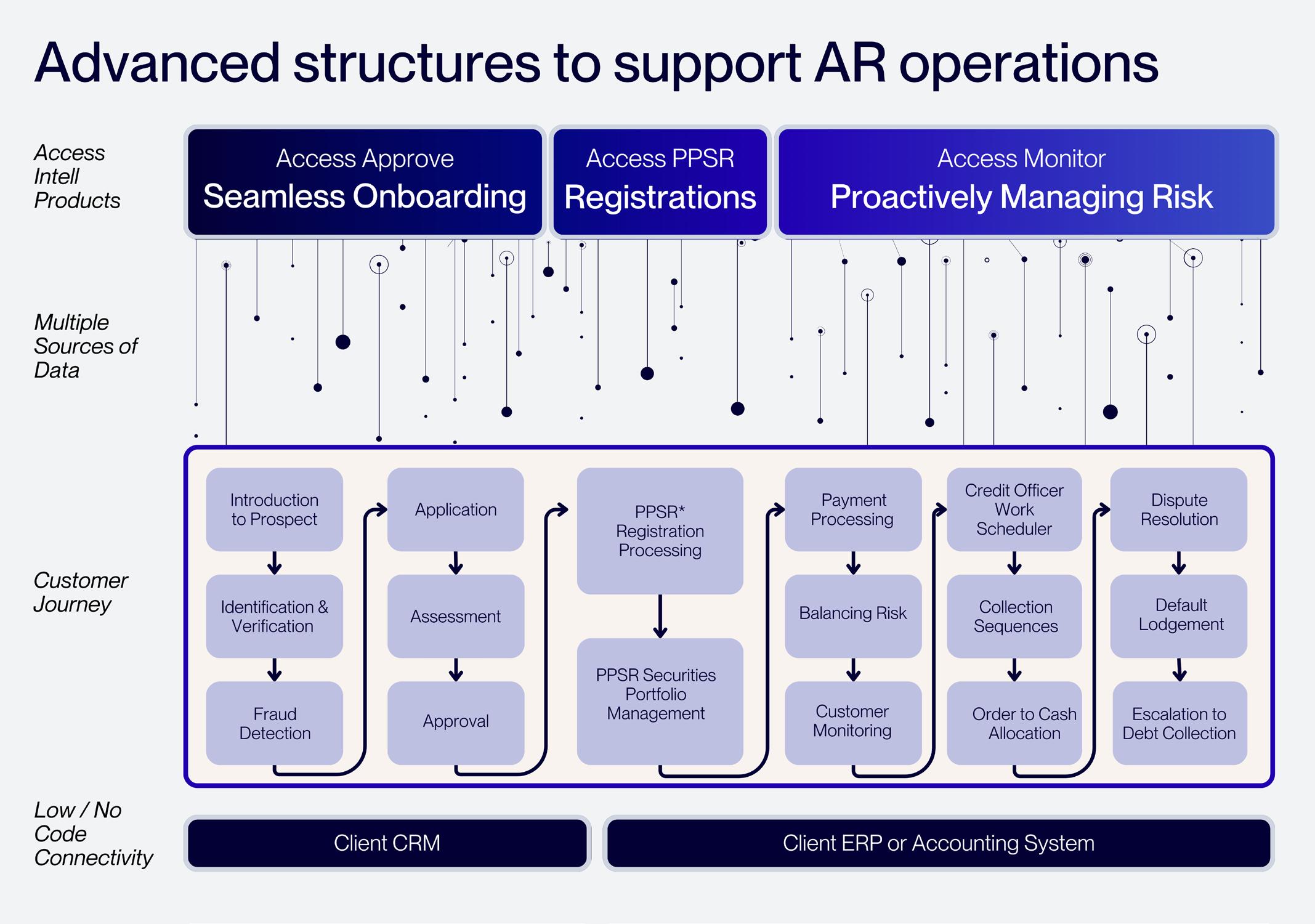
Having taken the decision to register, there are PPSR portfolio management tasks that need to be undertaken including processing renewals as registrations move towards their expiry date.
Two advances in PPSR technology in recent times have been in:
l compliance monitoring – ensuring registrations processed are correct and enforceable, and l automated active account renewal processing – digitally ensuring accounts are active before automatically processing PPSR renewals.
To further explain, the most common PPSR errors found are for serial numbered goods (errors in VINs), profile errors (ticking the incorrect boxes) and grantor identification errors.
One PPSR system is now able to identify and flag errors in registrations to enable users to correct the registration (where PPSR allows) or take alternative action to restore security in another way. This revolutionary advancement will make PPSR errors a thing of the past.
Monitoring customer risk to many means the receipt of hundreds and sometimes
thousands of ‘alert’ emails into an inbox every week signifying that ‘increased risk’ exists. These could be triggered by significant events such as the business becoming reportable under the ATO Disclosure of Business Tax Debts regime or an external administrator being appointed.
However, they are more likely to be insignificant e.g. the business has lodged an annual return, or a director has changed their address.
Credit professionals are demanding much more advanced solutions than this and technology providers are listening and innovating.
Three areas where risk monitoring technology has advanced is in:
l Configuration and choice – gone are the days when businesses chose one source of information, such as a credit bureau, to make decisions. Potentially missing out on critical information held by another bureau. Today’s credit professionals are demanding choice and configuration alongside automation. When it comes to deciding what information is relevant to its industry sector, customer type or exposure values and what can be ignored, technology providers are putting the control where it belongs.
l Visualisation – fragmented information delivered into email inboxes is no longer acceptable to forward focussed credit teams. They want to see where their risks and opportunities lie in their debtor book, and they want to see why.
l Action – historically, customer risk monitoring systems stood alone. Their job was to notify users of risk in a fixed customer list and their task ended

when they sent the alert email. Advancements in system integrations mean that risk detection can be dynamic and can trigger action steps to flow into diaries, CRMs, ERPs, finance systems, credit officer workbenches, external providers and many others. These can be customised to suit the customer group, be automated or manual and sit inside or outside a dunning cycle.
In summary, technology and automation in trade credit management is advancing at great speed. Credit professionals can take advantage of these developments in modular form – meaning they can implement solutions needed today (for example PPSR and monitoring) to suit urgent needs and plan what is next
in a staged approach to meet the future aspirations of the business. These are exciting times to be in credit.
Stay tuned for Part 3 in the next edition, covering Payments, Cash Allocation and Collections.
Lynne Walton MICM is the founder and CEO of Access Intell. Lynne was an Insolvency Practitioner for 15 years with Ernst & Young and KPMG in Scotland and BDO and PPB Advisory in Australia. She left the insolvency profession in 2010 to specialise in the PPSA and PPSR and founded the EDX (QLD) business which became Access Intell in 2018.
Access Intell helps businesses make wise credit decisions, manage risk and ensure they get paid using advanced process automation. The Access Intell platform transforms globally sourced data into risk intelligence to help businesses extend credit safely. Their cost-effective products deliver awareness and automation at every stage of the customer life cycle, from onboarding and assessment to PPSR and ongoing monitoring.
“One PPSR system is now able to identify and flag errors in registrations to enable users to correct the registration (where PPSR allows) or take alternative action to restore security in another way.”

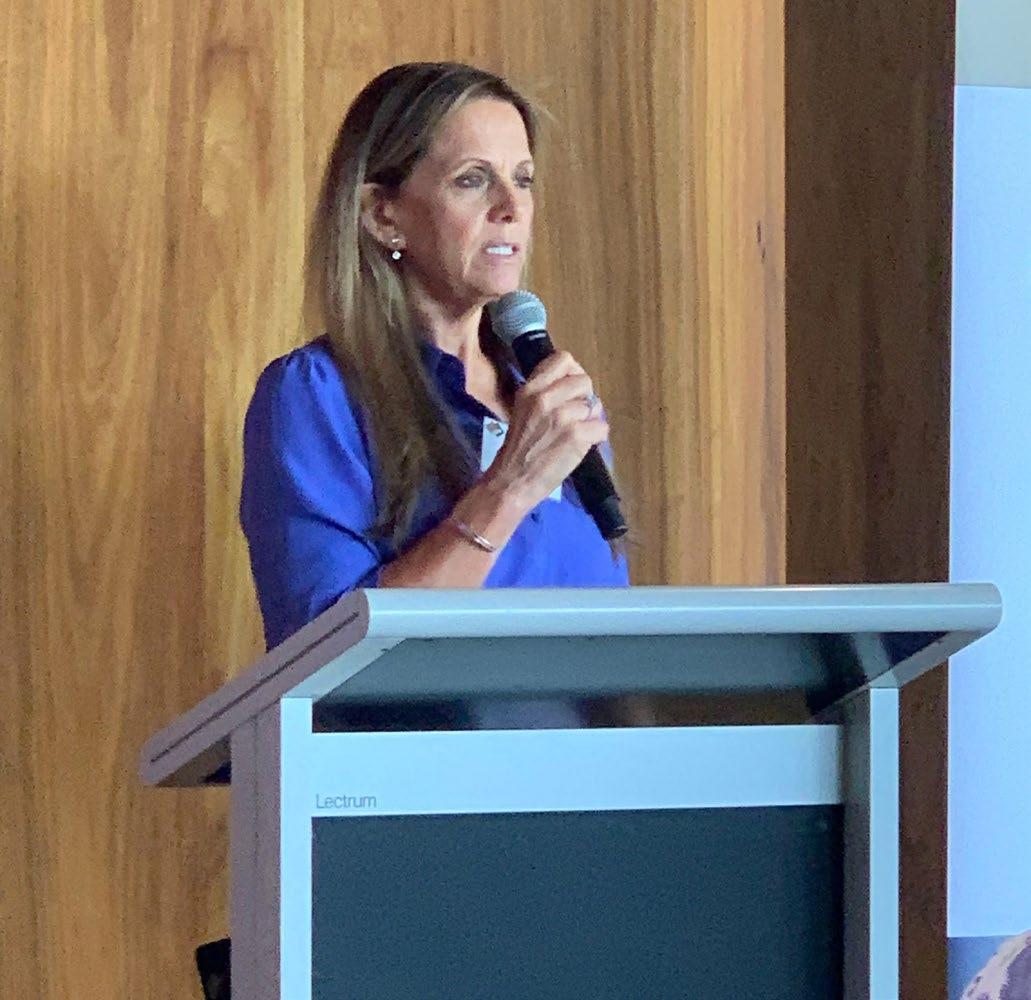
President’s Report
2024 was an outstanding year for the SA Division Council. Hudson Pitt from The Polygon Group was honoured with the 2024 National YCPA Award and the SA Council proudly took home the Presidents Trophy for 2024. These accolades highlight the Council’s unwavering dedication to the AICM and the promotion of credit management in South Australia.
The final event of the year, the Credit Nexus, was held at Coopers Brewery in Regency Park on 21 November 2024. A big thank you to Lisa Anderson and Elizabeth Dobbie for their exceptional organisation of this event. Attendees were inspired by Mel Cooper’s story, the first female and fifth-generation member to be permanently employed at Coopers Brewery. Mel shared the trials and triumphs of the brewery, making it a memorable conclusion to the year’s events.
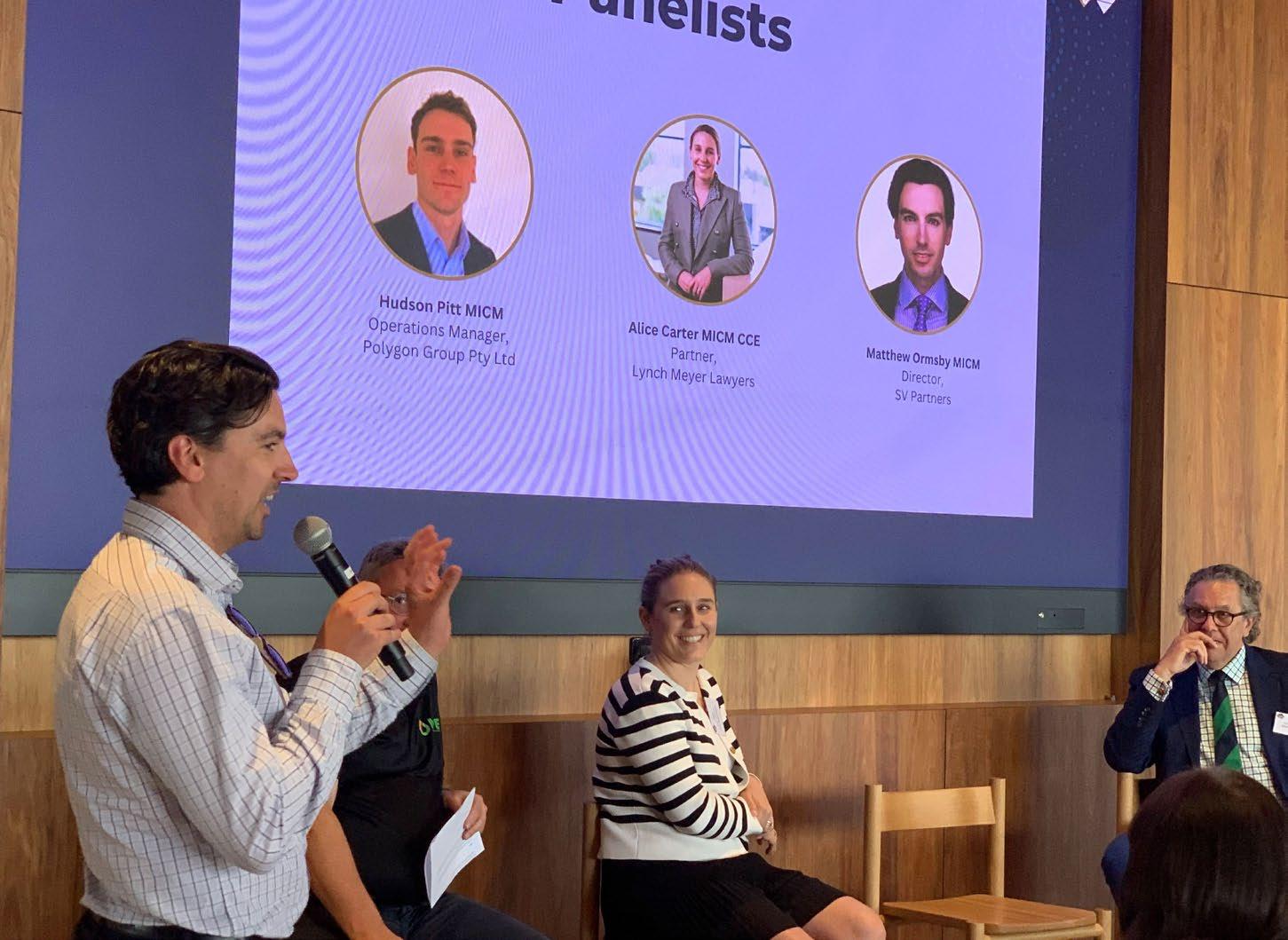
at Lynch Meyers Lawyers, Adrian Stewart, who stepped in at the last moment, and Matthew Ormsby, Director of SV Partners. The discussion emphasised the importance of resilient customer relationships and proactive measures in credit management during challenging economic times.
The Credit Panel discussion was both engaging and insightful, facilitated by Robin Matters, the panel featured Alice Carter, Partner
A special recognition was given to James Neate from Lynch Meyer Lawyers, narrated by Trevor Goodwin. James has been a cornerstone of the AICM and SA Council and his dedication
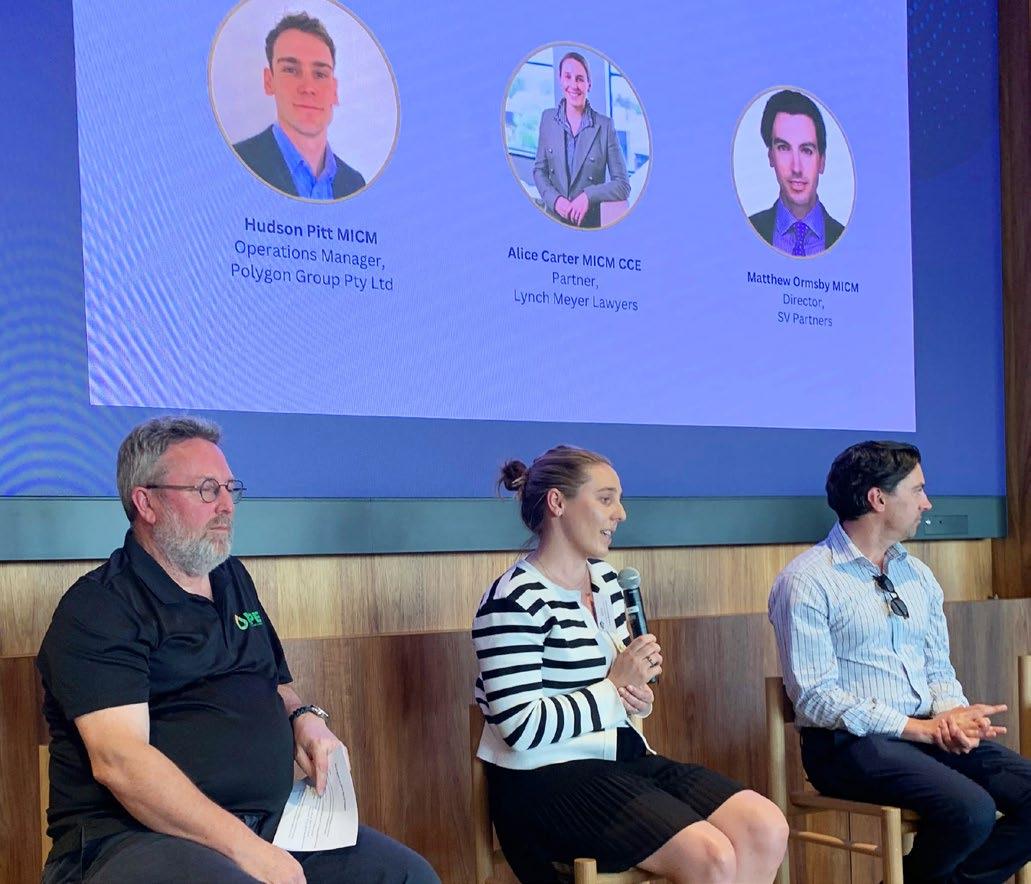
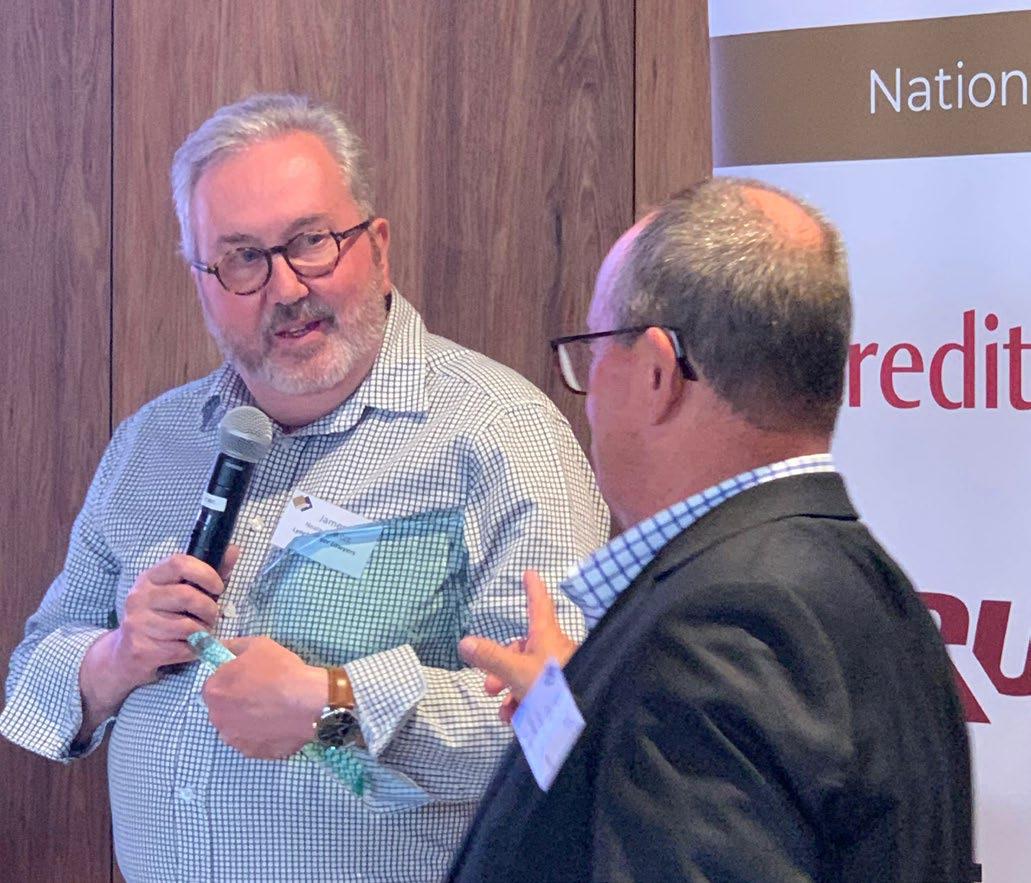
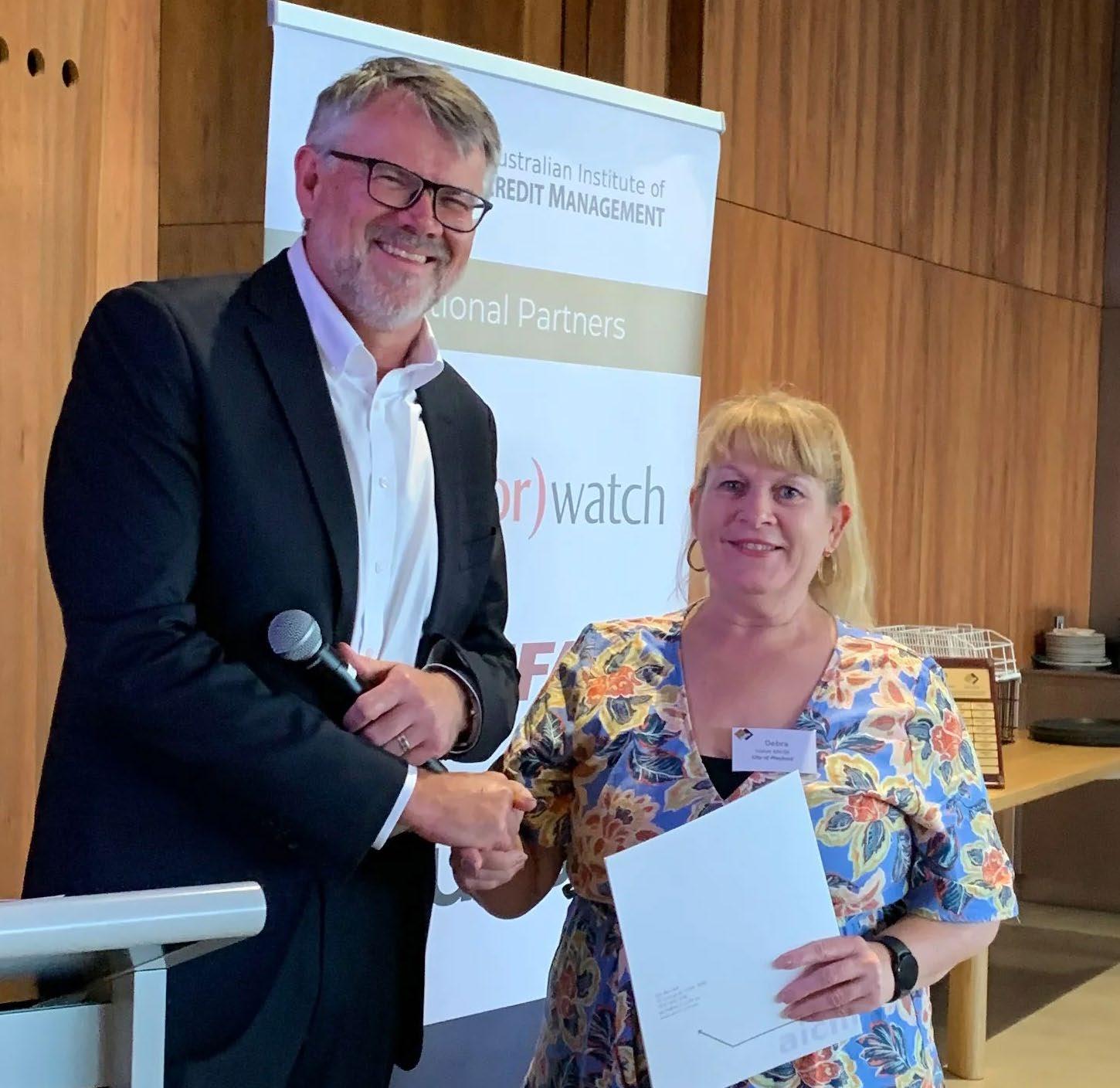
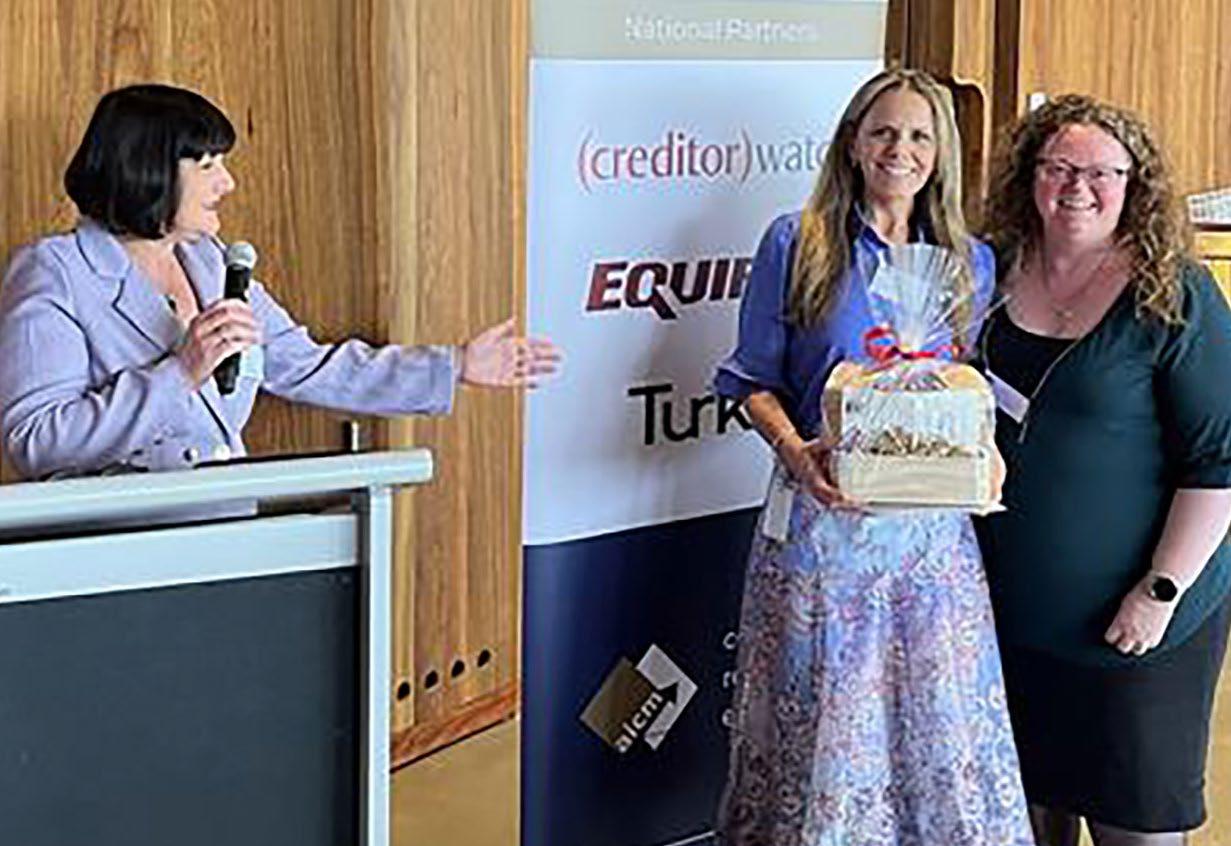
was celebrated with numerous stories from past years. Rob Jackson presented James with a 30-year recognition award, marking an honourable occasion.
Additional awards were presented to Alice Carter who was elevated to Fellow of the AICM (FICM) and Debra Foster MICM, who was recognised for 20 years of membership.
The first event of 2025 is the SA Division Barefoot Bowls on March 14th at Torrensville Bowling Club.
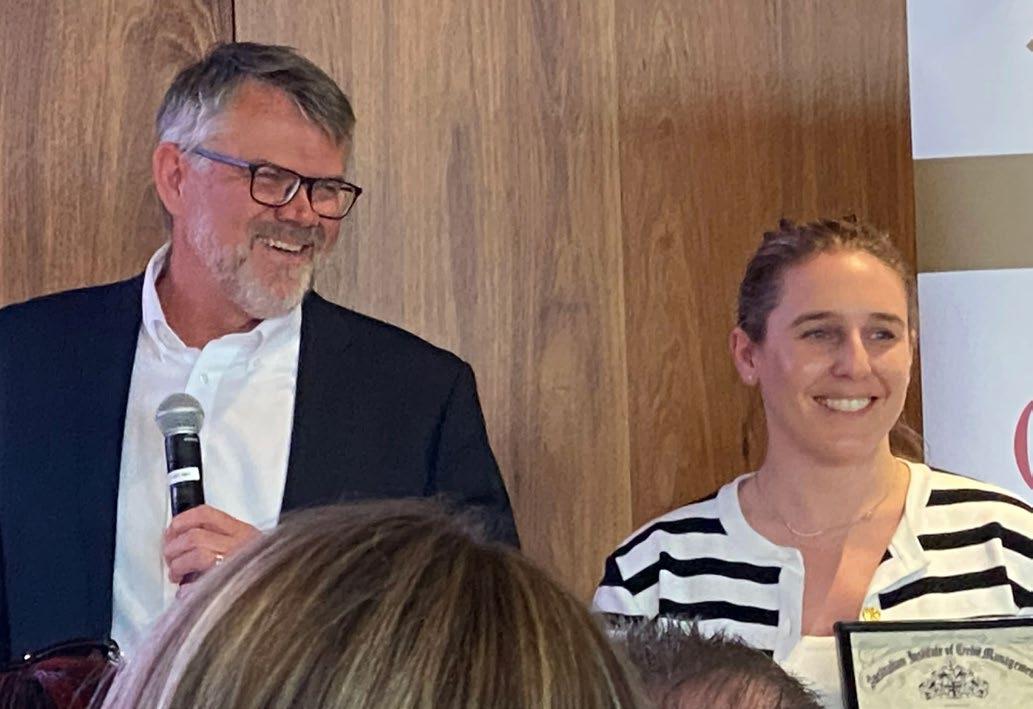
This event promises fun with attendees showcasing their bowling skills and winning fantastic prizes. A BBQ will be included, ensuring no one goes

hungry. We look forward to networking and meeting all attendees.
An exciting lineup of events is planned for 2025, including the SA Economic Update – Risk Seminar in March, the WINC Luncheon in May, the SA Trivia Night in July, and the YCP and CP Awards night in August. We encourage all emerging talented YCPs and seasoned professionals to apply for the awards as it is a great opportunity to gain recognition for their achievements. These events will also provide a wonderful platform for credit professionals to come together and celebrate each other’s successes.
We eagerly anticipate another successful year in 2025!
Elizabeth Dobbie MICM
My career in credit began at Westpac where I worked in Collections and Hardship, assisting clients with their mortgage and credit card repayments. I later advanced to a team leader position where I took great satisfaction in mentoring my team and contributing to the development of projects that streamlined the collections process. In my current role at NCI I have found both challenges and rewards that have allowed me to expand my skillset. NCI has allowed

me to draw on my previous background in client service and portfolio management focusing on building strong relationships and helping clients protect their businesses.
What is your biggest professional accomplishment to date?
My most significant career accomplishment has been being named a Division Finalist for the Young Credit Professional of the Year. This recognition has deepened my passion for credit and reinforced my commitment to helping clients protect their businesses. I am also motivated to serve as a mentor for young professionals, particularly young women in the workforce. I am dedicated to ensuring that sustainability and environmental considerations are at the forefront of our work, alongside a strong emphasis on excellent customer service and sound credit practices.
What advice can you give to emerging credit professionals?
My key advice is to find your rhythm, seek out mentors, and never hesitate to ask questions. Cultivate your passion and pursue your goals with determination. With a wealth of knowledge available and many experienced role models around us there is an endless opportunity to learn. Embrace as much as you can and identify a cause or area that inspires you. I firmly believe that when we are passionate about our work, we excel in it.
What has been your biggest professional challenge to date?
My most significant career challenge to date occurred during the COVID-19 pandemic in 2020, when I was forced to make a complete career transition. Like many others, this period represented a significant upheaval in my life. I transitioned from client service and management in the travel industry, which was severely impacted by border closures and travel restrictions, to the finance sector, taking on a role in Collections and Hardship at a bank. Although the shift in industry was drastic, I applied my own advice: I focused on finding my rhythm and an area of passion within the finance industry. I embraced this challenge as an opportunity to develop new skills and transformed a time of uncertainty into a defining moment in my career.
What has being a member of the AICM done for you?
Being a member of AICM has significantly expanded my horizons in terms of knowledge, professional relationships, and opportunities. It has introduced me to a wealth of resources, information, and courses that have enhanced my skills and expertise. I’ve also forged valuable connections with other members who I appreciate both professionally and personally. This community has allowed me to connect with like-minded individuals in my field providing me with mentors and confidants I can rely on for guidance and support.
For fun, I’m obsessed with my dog, my family and my chosen family (my friends). I have a very active social life but when I am not spending time with any of the aforementioned, I am at the beach, reading my books, or dancing in Choo La La on stage (which coincidentally involves my friends). Good food, better wine and the best company are how my weekends are usually spent.
The Australian Institute of Credit Management welcomes our Partners for 2025 National Partners


Division Supporting Sponsors
Our National, Divisional and Professional Partners support and work with the AICM to promote the Institute’s activities, represent the Credit Industry and develop the careers of all Credit Professionals. As these organisations support your Institute and your Industry please consider them when you require assistance.
To all of our valued Members,
As we step into 2025, I want to take this opportunity to warmly welcome you all to another year with our professional credit management community. Reflecting on 2024, it was a year of both challenges and achievements. The economic landscape in Western Australia presented its fair share of complexities, yet through resilience, adaptability, and professional dedication, we have navigated these obstacles together.
Credit professionals play a critical role in the financial ecosystem, and in the face of economic uncertainty, your expertise and commitment have ensured stability and progress. I want to acknowledge each and every one of you for your perseverance, professionalism, and contributions to the industry.
Looking ahead, we are committed to supporting you throughout 2025. The AICM will continue to provide opportunities for professional development, networking, and knowledge-sharing. Through our seminars, industry events, and recognition programs, we aim to keep you informed of the latest trends, regulatory changes, and market dynamics that impact our profession.
This year, we encourage you to take full advantage of the events and resources available. Whether it’s attending our Risk & Economic Seminar, participating in the WA Awards Night, or joining discussions on cybercrime and fraud prevention, there will be ample opportunities to engage with peers, expand your expertise, and strengthen your professional network.
Credit management is evolving rapidly, and
6 June 2025
Thursday, 14 August
staying informed is key to success. As an Institute, we remain dedicated to equipping you with the knowledge and connections necessary to thrive in an ever-changing environment. Our community is built on collaboration and support, and together, we will continue to elevate the standards of our profession.
I look forward to seeing you at our upcoming events and working alongside you in the year ahead. Thank you for your continued commitment to the credit management industry. Here’s to a successful and rewarding 2025!
– Cheri Bowater MICM CCE WA Division President

As we step into the new year, AICM are excited to present a lineup of exceptional events designed to bring together professionals in the credit management community in WA. These gatherings will provide valuable insights, networking opportunities, and industry recognition.
Mark your calendars and join us for another year of learning, collaboration, and celebration!
March: Risk & Economic Seminar
This seminar is a cornerstone event for those in the credit and finance sectors, offering an
in-depth analysis of the current economic landscape. Attendees will hear from local industry experts on the latest trends in credit risk, legal developments, and insolvency updates. With dedicated networking sessions, this event provides an excellent opportunity to connect with peers, exchange ideas, and discuss strategies for navigating economic challenges.
A much-anticipated event, the Annual Golf Day offers an enjoyable mix of competition and camaraderie. Whether you’re an experienced golfer or picking up a club for the first time, this day provides a fantastic way to engage with colleagues and industry professionals outside of the office. Prizes, refreshments, and a relaxed atmosphere make it a must-attend social event.
This luncheon celebrates the invaluable contributions of women in the credit management field. The event will feature distinguished speakers sharing insights into leadership, career growth, and industry advancements. It is an empowering and inspiring gathering, offering an excellent chance for networking and recognising the achievements of women who make a difference in the profession.
One of the premier highlights of the year, the WA Awards Night honours the outstanding achievements of our professionals in the credit industry. The event will recognise both the Young Credit Professional of the Year and the Credit Professional of the Year in WA. With a formal dinner, guest speakers, and an engaging awards ceremony, this is a prestigious event that celebrates excellence, hard work, and dedication in the field.
With cyber threats on the rise, staying informed is crucial. This breakfast session, presented in collaboration with the WA Police, will cover the latest in cybercrime and fraud prevention. Attendees will learn about emerging threats, best practices for safeguarding financial data, and
strategies to prevent fraudulent activities. This is an essential event for anyone looking to enhance their knowledge and preparedness in an increasingly digital world.
The perfect way to close out the year, the End of Year WA Sundowner is a relaxed and enjoyable networking event. It’s an opportunity to reflect on the year’s achievements, strengthen professional relationships, and unwind in a casual setting. With great company, drinks, and entertainment, this event is an ideal way to celebrate the hard work and successes of the credit management community.
We look forward to seeing you throughout the year at these fantastic events. Stay tuned for more details and be sure to save the dates!
The Australian Institute of Credit Management welcomes our Partners for 2025


Our National, Divisional and Professional Partners support and work with the AICM to promote the Institute’s activities, represent the Credit Industry and develop the careers of all Credit Professionals. As these organisations support your Institute and your Industry please consider them when you require assistance.

Welcome to 2025! It is with great excitement that I step into the role of VIC/TAS President in 2025.
I would like to take this opportunity to acknowledge and thank Mary Petreski for her dedication and leadership as former President. While Mary has stepped down from this role, we are fortunate to have Mary’s expertise continue as she takes on the position of VIC/TAS Director on the AICM National Board.
This year is shaping up to be an exciting one for our division, with a fantastic calendar of events ahead for both our Vic and Tas members. The ever-so popular golf day is fast approaching in February, providing a great opportunity to connect with industry peers in a fun and relaxed environment. This will be followed by the Risk seminar in March, an essential seminar for staying ahead of the latest trends and developments in risk management.
I encourage all members to check the AICM events calendar and register early to secure your
“This year is shaping up to be an exciting one for our division, with a fantastic calendar of events ahead for both our Vic and Tas members.”
spot at these valuable networking and learning opportunities.
Planning for WINC 2025 is already underway, marking the 10th anniversary of the WINC events. Stay updated via the AICM website and LinkedIn for further announcements.
As your new president, I look forward to meeting and engaging with you all throughout the year. Let’s make 2025 a year of growth, collaboration, and success for the VIC/TAS division!
– Amanda Rothwell-Hiscock MICM VIC/TAS Division President
Nunzio Settinelli MICM CCE
With nearly three decades of experience in credit management, Nunzio has built a career marked by adaptability, deep industry knowledge, and a passion for continuous learning.
From his early days in accounting to holding senior credit management roles across various industries, Nunzio has witnessed firsthand the evolution of credit practices, the challenges that come with managing risk, and the importance of strong customer relationships. In this article, Nunzio sat down with us to share his insights into his journey into credit, what keeps him engaged in the industry, and the changes he’s seen over the years.

landed a role doing costing for a small family business and because it was a small operation, I found myself doing all sorts of duties, from making deliveries to unloading containers. One day the accountant asked me to review a list of customers who hadn’t paid and to give them a call. That was my introduction to credit management. I remember thinking, “This is a pretty cool gig. I wonder if there’s a career in this.”
I then applied for a Credit Controller role in early 1995 and got a job with Wormald Security. Over time, I worked my way up to Assistant Credit Manager and then transitioned to a National Credit Manager role in the paper industry. That experience set the stage for future opportunities, including a Regional Credit Manager role at Tyco, looking after Victoria, Tasmania and South Australia. Over the years, I moved into senior credit positions, adapting to industry changes and restructures, but credit has always been at the heart of my career.
How did you originally get into credit?
I kind of fell into it. I studied to become an accountant and completed my Diploma in Accounting. When I started looking for a job, I
What do you love about credit?
I love that it allows you to interact with people and understand how businesses operate. Unlike traditional accounting roles that focus primarily
on numbers, credit management involves strategy, customer engagement, and risk assessment.
One of my favourite aspects is setting up processes. I enjoy going into a company and streamlining their credit operations – introducing automation, updating payment systems, and refining procedures. For example, when I joined Ruralco, they were still printing and manually mailing statements. Within three months, we moved to an automated system that significantly improved efficiency.
Each industry has its unique challenges. In agriculture, for instance, you’re dealing with farmers who might be waiting to sell livestock or harvest crops before they can pay. In electrical wholesale, you encounter customers who sometimes stretch the truth about payments. The variability keeps the job interesting.
What are the biggest changes you’ve seen in credit over the years?
Technology has completely transformed the industry. When I started, we used to print trial balances on A3 sheets and track followups on handwritten index cards, filing them alphabetically or numerically. Everything was manual.
Then systems like Pronto came along, allowing us to take notes and follow up online. Credit card payments also evolved – we went from processing them through physical terminals to using various online gateways. Automation has been a gamechanger, making processes more efficient and reducing errors. Regulatory changes have also
“One of my favourite aspects is setting up processes. I enjoy going into a company and streamlining their credit operations – introducing automation, updating payment systems, and refining procedures.”
been significant. I remember attending an AICM conference in 2001 when the Personal Property Securities Register (PPSR) was first introduced. It was a major learning curve for the entire industry. More recently, COVID-19 and tax enforcement measures have impacted businesses, affecting credit limits and risk assessments.
What is the value of the AICM?
The AICM plays a crucial role in educating credit professionals. I’ve attended their conferences, and they’ve been instrumental in helping me understand regulatory changes and best practices. For instance, when PPSR was first introduced, I knew it was coming, but it wasn’t until I attended a conference and engaged with industry experts that I truly grasped its implications. Beyond formal education, the AICM facilitates valuable networking. Engaging with fellow professionals, exchanging insights, and learning from each other’s experiences enhances our ability to navigate challenges in the field.
What are some of the biggest challenges facing credit professionals today?
One of the biggest challenges is understanding customers – particularly those who operate in industries with complex structures. Another challenge is communicating effectively with internal stakeholders. When dealing with companies that enter administration and later return under a different arrangement, often with the same directors, it’s frustrating to explain to a general manager why a company that previously failed is allowed to continue operating. The same goes for voluntary administration and restructuring processes that sometimes seem to favour struggling businesses over creditors.
Additionally, some companies ghost their creditors, avoiding payments despite continuing to trade. The question then becomes: how much money do you invest in chasing a $5,000 debt when the debtor is actively dodging service?
How do you balance risk management with maintaining strong customer relationships? It’s a delicate balance. Just the other day, I
“Credit is a fantastic field for anyone interested in business. Unlike some accounting roles that focus solely on tax and reporting, credit management exposes you to risk assessment, entity structures, balance sheets, debt collection, and legal processes.”
was discussing a customer with our GM. The company had a default listed at the end of the previous month. I advised caution, especially since one of our branches was struggling with sales and might be tempted to take on more risk than necessary. Then a second default appeared, and at that point, I had to recommend avoiding the customer altogether. If there had been only one default, I might have supported further engagement, but multiple red flags required a firm stance.
In industries like electrical wholesale, relationships run deep. When you’ve been dealing with the same customers for over a decade, it’s easy to become lenient. But ultimately, you must set emotions aside and make the best decision for the business.
What advice would you give to a young person looking to progress in the credit industry?
Credit is a fantastic field for anyone interested in business. Unlike some accounting roles that focus solely on tax and reporting, credit management exposes you to risk assessment, entity structures, balance sheets, debt collection, and legal processes. You’re not just calling customers for payments – you’re learning every aspect of how a business operates. For those starting out, I always recommend gaining experience in all areas: credit inquiries, debt collection, and legal enforcement. The more you understand, the more valuable you become.
What do you do in your spare time?
Family time is a priority. My son recently got married, and my daughter lives in Sydney, so my wife and I visit her every couple of months. We also spend time with my mum and in-laws. I enjoy going to the movies and staying active. My wife and I love walking – not just around our neighbourhood but also exploring different
locations. I’m also passionate about gardening. On weekends, I sometimes start at 6am and don’t come back inside until late afternoon. It’s a great way to unwind and stay productive outside of work.
The Australian Institute of Credit Management welcomes our Partners for 2025







For seven years, our annual Risk Seminar series has provided invaluable insights into how current trends shape credit risk management. This series, informed by a comprehensive survey of credit professionals, brings together leading minds in credit, insolvency, and law to navigate and respond to evolving risk.
In 2025, we’re taking it a step further with a dynamic, interactive program designed to equip credit professionals with the knowledge and tools needed to thrive in an uncertain environment.
This year’s seminars will cover what you need to succeed, including:
l Fraud & Cybersecurity: Learn best practices for fraud prevention and strategies to address growing cybersecurity threats.
l AI & Technology Adoption: Explore how organisations are leveraging AI to enhance credit risk management and fraud detection.




l Improving Collections: Discover actionable strategies to optimise collections and mitigate the impact of deteriorating DSOs.
l Preparing for 2025 Challenges: Unpack emerging risks, including ESG integration, economic volatility, and sector-specific challenges, with proactive solutions tailored for credit professionals.
l Bankruptcy and Insolvency: Emerging trends and recent developments.
These seminars are thoughtfully designed by the best minds in credit to help you:
l Identify where credit and insolvency risks will arise.
l Understand emerging trends impacting your portfolio.
l Adapt to new reforms and an ever-changing landscape.
l Maximise returns while minimising risk exposure.
Whether you manage commercial or consumer credit portfolios, these seminars are tailored for experienced credit professionals across all industries and sectors.
Event Details:
When: Thursday 20 March 2025 12:30pm – 6:00pm
Where: Batman's Hill on Collins, 623 Collins St, Melbourne VIC 3000
Earlybird Registration Prices:
Members: $195.00 (inc. GST)
Non-members: $255.00 (Inc. GST)
After 6 March:
Members: $215.00 (inc. GST)
Non-members: $280.00 (Inc. GST)
CPD Points: 4





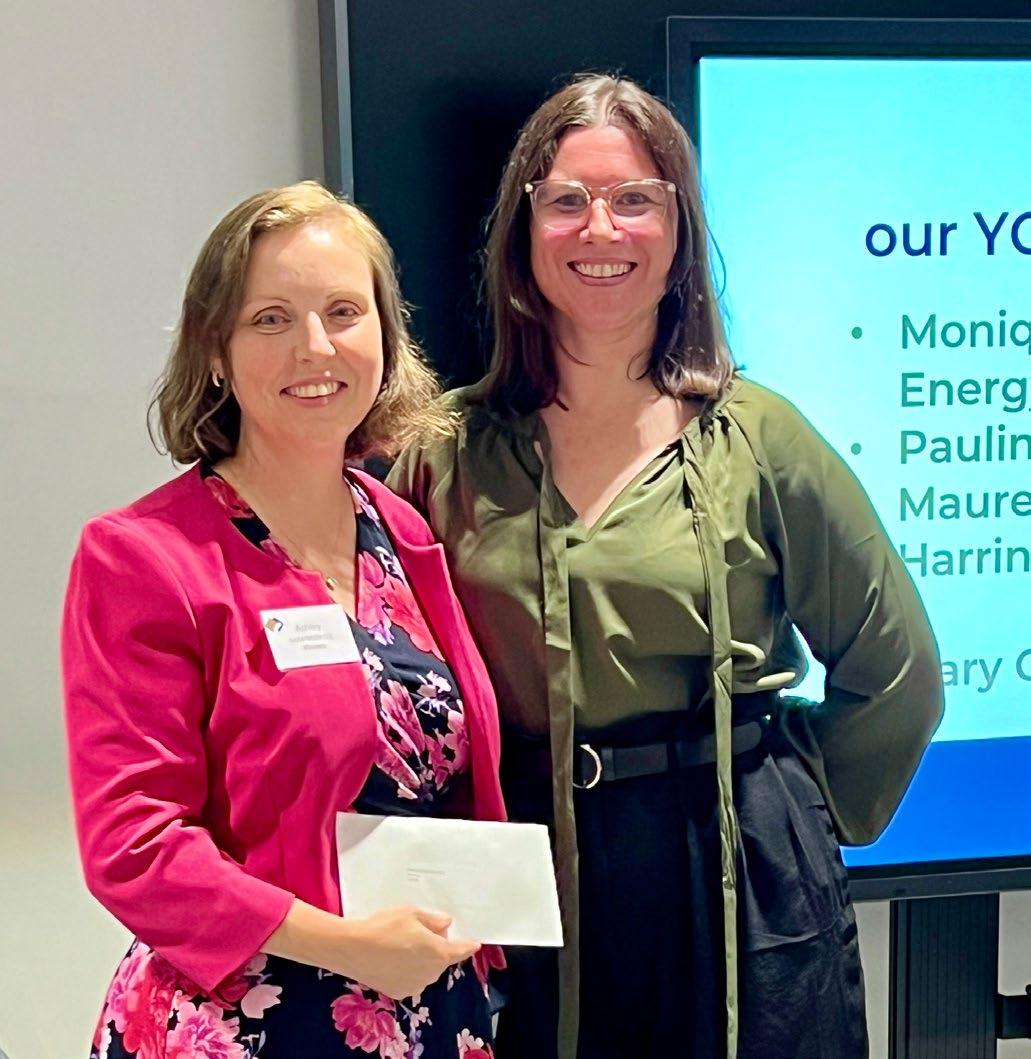
As we kick off another exciting year, I can’t help but reflect on the incredible momentum we built in 2024. From sold-out events to record-breaking achievements, the energy within our QLD credit community is stronger than ever!
We wrapped up last year with our Credit Nexus event, bringing together credit professionals for an evening of networking, insights, and celebrations. It was the perfect way to close out a fantastic year and set the stage for an even bigger 2025. Thanks

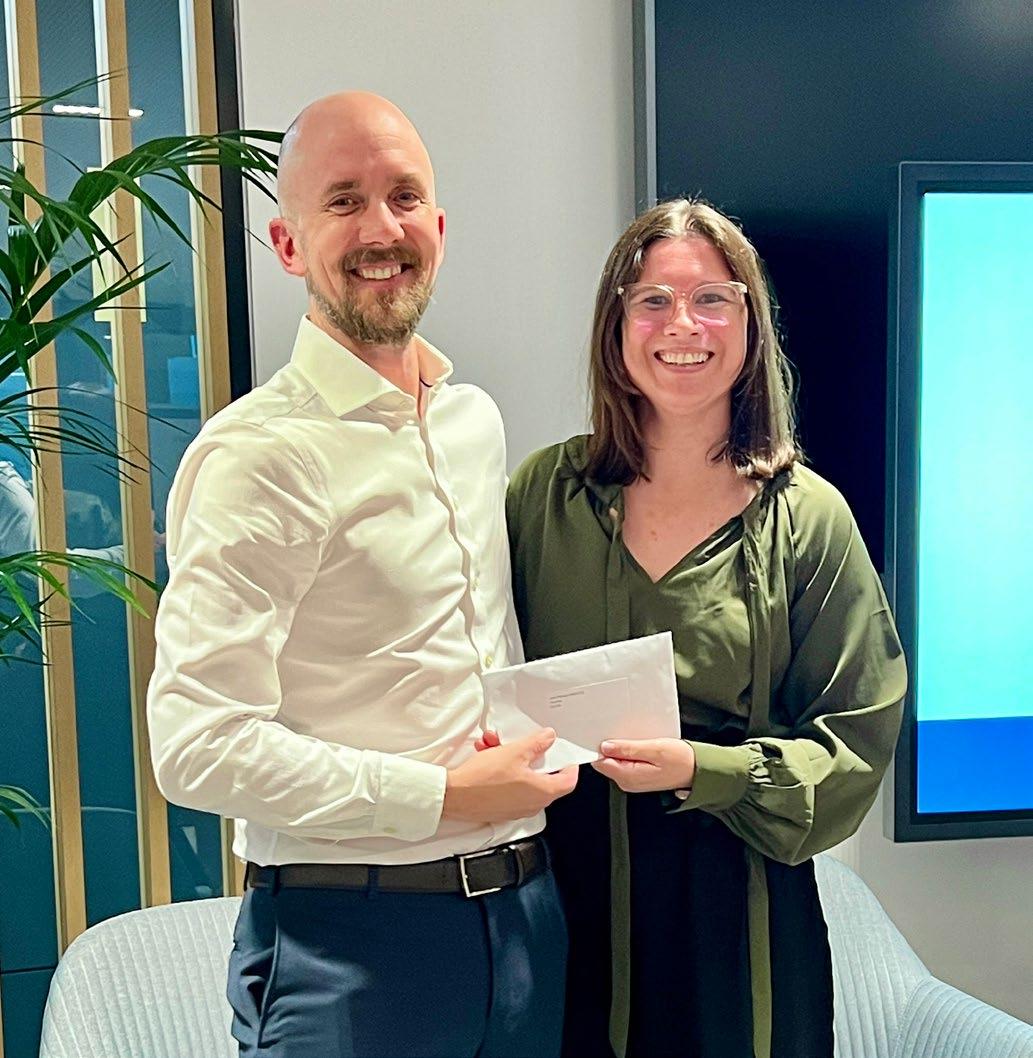
again to Vincents for letting us host this event in your offices.
As we move into the new year, planning is already in full swing for our upcoming events. Our focus remains on delivering engaging professional development, networking opportunities, awards night, and, of course, our much-anticipated Women in Credit (WINC) luncheon. With 2025 marking the 10-year anniversary of WINC, this year’s event is shaping up to be extra special!
A special thank you to our sponsors, members,
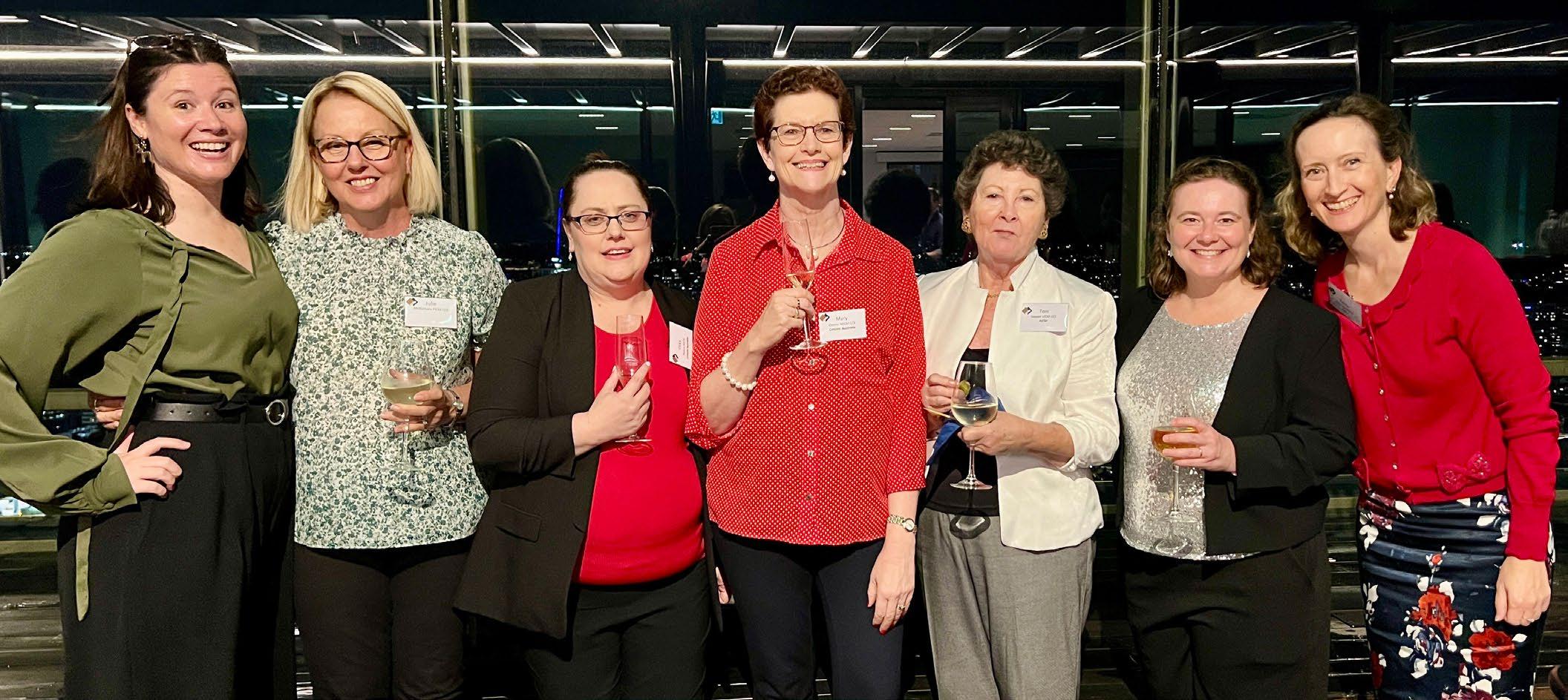

and council – your support and commitment make everything we do possible. I’m looking forward to another fantastic year with AICM QLD, and I hope to see you all at our upcoming events!
– Stacey Woodward
MICM CCE QLD Divisional President
Qld Credit Nexus
Thursday, 21 November 2024
Our final Professional Development event of the year took place at the Vincents office on the 33rd floor, offering a stunning view of the Brisbane
skyline and river. It was an evening dedicated to reflecting on the year that was, while also looking ahead to what’s in store for 2025.
The afternoon began with table networking and open discussions about the challenges we faced throughout 2024. As we shared our experiences, it became clear that many of us had encountered similar obstacles: the implementation of new systems, difficulty in finding the right employees, the importance of succession planning, and the ever-present struggle to maintain a work-life balance.
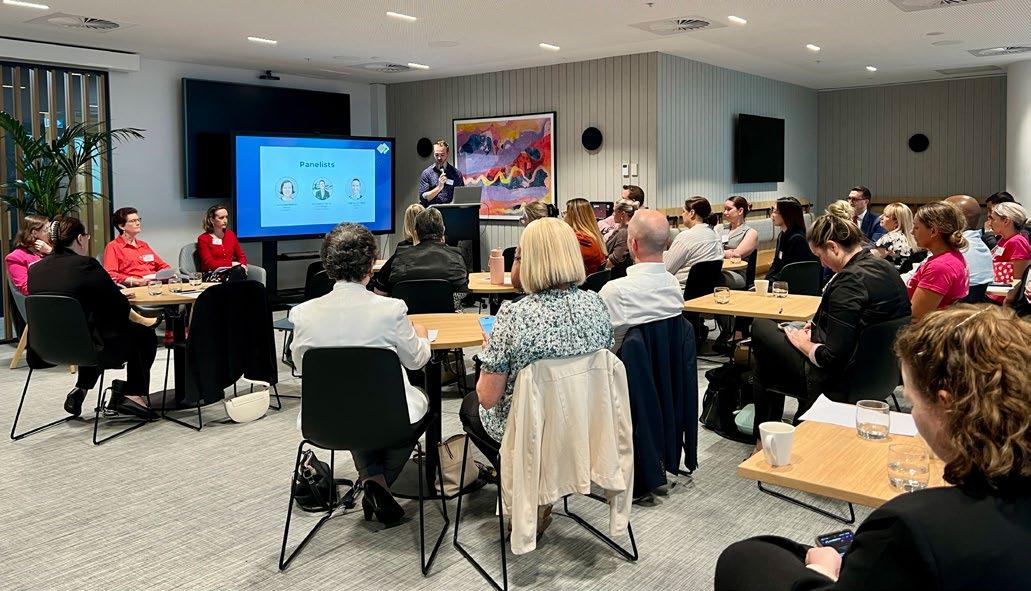

Jordan McNee, our MC for the evening, introduced our expert panel: Ashley Leslie from Vincents, Fiona Reynolds from Turks Legal and Mary Owens from Cement Australia. Mary, who was also a finalist for Credit Manager of the Year and was in the top two with her team for Credit Team of the Year, shared her valuable insights on the year’s challenges from their respective areas of expertise.

Ashley discussed the ongoing reforms to Small Business Reforms and the actions being taken by the ATO, which have had a significant impact on businesses across all industries and will likely continue well into the future. Fiona addressed the recent changes in government and how they’ve affected businesses and individuals, including the rise of scams circulating in the market. Mary spoke candidly about her experiences in credit, particularly the challenges faced within the building sector, as well as her journey in being the Queensland finalist for Credit Manager of the Year and leading her team’s submission for Credit Team of the Year. Mary certainly had a whirlwind year, and we are incredibly proud to have her as a member of the AICM Queensland chapter.
The evening concluded with a celebration of the milestones reached by our members, including congratulations to the new Certified Credit Executives (CCEs), Luke Thirlwell and Ashley Leslie.
As a fitting end to the year’s final event, we enjoyed a delicious spread of finger foods and a glass of wine while taking in the breathtaking city skyline.
Sarah Anderson MICM – Credit & Collections Officer, Ergon Energy Retail
How did you hear about the scholarship program that the AICM offer? I heard about the program through my AICM membership emails.

What was the process involved in applying for the scholarship?
The process was super easy, the emails directed me to the website where I had filled out the application and included my resume and cover letter, I then received an interview invite where a panel of 3 credit professionals asked me questions about my history and why I wanted to complete a scholarship with AICM.
Would you recommend for others to apply for a scholarship?
100%, if I am being honest, I didn’t think I was going to get it, but my thought process was why not shoot my shot. The worst that can happen is you don’t get it, I wasn’t any worse off for that, but I was lucky enough to be accepted into the program.
So, if there is anyone out there wondering if they should apply, I say do it!
What course has the scholarship enabled you to do? I am in the process of completing the Certificate IV in Credit Management.
The AICM has plenty of resource tools available. What are some of the most useful tools you have found while studying?
Honestly it is the facilitators, they are the best tool available, they are knowledgeable and don’t make you feel dumb for asking questions.
Do you attend face to face training or networking that the AICM offer?
I have attended multiple workshops and toolboxes alongside doing my Certificate, and everyone I have attended has helped me in my day-to-day role, I have even been able to pass that knowledge on to my co-workers.
What are your favourite things to do outside of your profession?
I have a teenage son and husband who both play music, so we love spending time listening to old records together.
Luke Thirlwell MICM CCE
- Associate Director in the Restructuring & Recovery Division at Vincents. I specialise in Corporate and Personal Insolvency.
How long have you been a member of the AICM?
I have been a member of the AICM for 2.5 years

You recently completed your CCE, did you do the classroom exam or essay? How did you find the experience?
I completed the classroom exam and found the experience both challenging and rewarding. The process really pushed me to apply my knowledge and skills in a comprehensive way, deepening my understanding of the credit industry.
Would you recommend other members completing their CCE?
Absolutely, I highly recommend that other members consider completing their CCE. Pursuing professional qualifications like the Certified Credit Executive designation is a fantastic way to invest in your own growth. It not only validates your expertise and dedication to the credit industry but also sets you apart as a recognised professional.
The CCE is a rigorous yet rewarding journey that challenges you to refine your skills and broaden your understanding of the credit industry in Australia. It’s a fantastic opportunity to connect with like-minded professionals, exchange insights, and gain new perspectives.
From a career perspective, holding the CCE designation is a mark of industry recognition that can open doors to new opportunities – whether you’re looking to advance in your current role or explore new career paths. Employers highly value professionals who demonstrate a commitment to continuous development, and the CCE is a strong signal of your ambition and capability.
Most importantly, the process itself is deeply fulfilling. It builds confidence, strengthens your professional skills, and provides the satisfaction of achieving a milestone that reflects your hard work and dedication. If you’re serious about advancing in the credit field, I strongly encourage you to pursue the CCE.
What has being a member of the AICM done for you?
Being a member of the AICM has been an incredibly rewarding experience, both professionally and personally. Through my involvement, I’ve had the privilege of forming strong professional connections with industry peers who bring a wealth of knowledge and experience to the table. These connections have been invaluable for sharing insights, navigating challenges, and staying ahead of industry trends.
On a personal level, the camaraderie I’ve experienced within the AICM community has been equally impactful. From brainstorming solutions to sharing a laugh, the friendships I’ve built have provided both inspiration and support throughout my career.
The educational opportunities provided by the AICM have been another standout benefit. From understanding the legal intricacies of the credit industry to tackling the practical, day-to-day challenges of managing credit, and even exploring broader enterprise management strategies, the learning has been incredibly well-rounded and impactful for my professional growth.
One of the highlights of being a member has certainly been the social events. These occasions offer a fantastic chance to unwind, celebrate our collective achievements, and connect with likeminded professionals. Whether it’s a gala dinner, networking event, or a more casual gathering, AICM creates a vibrant atmosphere that fosters both meaningful connections and memorable experiences.
Being part of the AICM is more than just membership – it’s an opportunity to grow, collaborate, and thrive within a dynamic community of credit professionals.
What are your favourite things to do outside of your profession?
Outside of my profession, I’m passionate about staying active through walking, running, and cycling – it’s a great way to clear my mind and recharge. I also thoroughly enjoy a relaxing weekend away, especially on a winery tour with
friends. There’s something special about wrapping up an AICM conference and continuing the camaraderie over good wine, beautiful scenery, and great company. These moments offer the perfect balance to the professional grind.
As an Insolvency Practitioner for fifteen years (in both Scotland and Australia) I witnessed firsthand the detrimental impact of bad debt on good businesses. Sadly, in most cases it was easily avoidable. Realising I was playing for the wrong team, I left the profession in 2010 to establish EDX QLD. The primary goal of this venture was to shield businesses from trade credit risk using the Personal Property Securities Register (PPSR). This was my first step towards what is now my passion – leveling the playing field for suppliers – which set the scene for our mission today. Access Intell was born in 2018 with the objective of creating an affordable, quickly deployable, end to end credit management software solution. PPSR was only the beginning. We have since launched Access Approve (online application and assessment) and Access Monitor (continual risk monitoring) to great success.
Our point of difference is that we are not a credit bureau. Instead, we collect data from a range of diverse local and global sources to offer businesses the best data choices, process customisation and advanced integration. We put our clients front and centre with service being a key differentiator.
Access Intell is growing fast, with 711 businesses

now using our platform. Being a disruptor keeps us agile and responsive. We’re always on the hunt for new ways to help our clients grow their businesses safely.
Why did you choose to be a divisional partner in Qld for AICM?
Access Intell has long been involved with the AICM, and I wanted to formalise this support by becoming a divisional partner. We have clients all around Australia, but Brisbane is our home city and so Queensland was the natural choice. We are expanding so watch out for us landing soon in Melbourne and Sydney.
Personally how long have you been a member of the AICM?
I’ve been a member for 11 years. I wouldn’t be able to count the number of events I’ve been to, presentations I’ve given or people I’ve met! I’ve held membership of several industry organisations during my career, and I can say without a doubt that the AICM is one of the most engaging and vibrant communities I’ve encountered. Industry professionals deeply invested in supporting each other and the collective promotion and success of credit management.
What benefits do you get from being a member?
Our clients are primarily Credit Managers. There’s nowhere better to keep us up to date and across
their challenges than the AICM. It helps us know what’s happening so that we continue to meet the industry’s needs and exceed its expectations.
What do you enjoy about attending the events that are held?
Building relationships is critical to our success. Our clients often comment our personalised and responsive service is something you don’t get from larger organisations. I enjoy catching up and collaborating with like-minded people. I love how the events bring people together whether they are credit or finance professionals, lawyers or debt collectors. Many I’ve met at AICM events have become referral partners once they see how much value our products bring.








The Australian Institute of Credit Management welcomes our Partners for 2025 Our National, Divisional and Professional Partners support and work with the AICM to promote the Institute’s activities, represent the Credit Industry and develop the careers of all Credit Professionals. As these organisations support your Institute and your Industry please consider them when you require assistance.

Happy New year to all our members and sponsors, we hope that 2025 brings significant success to everyone.
As 2024 ended, NSW held its last event for the year ‘The Credit Nexus’ which was held at the Deloitte Australia premises in Parramatta. Thank you to Deloitte for hosting the event at your very impressive premises.
Tom Harding from Deloitte also shared valuable insights regarding the economic outlook for 2025. Thank you to David Mansfield, Peter Morgan, Flo Matimati & Michael Gerondis participating on the panel and Andrew Tanna for their contributions and time.
A big congratulations to Peter Morgan for attaining his FICM. Peter has been a member for over 13 years and a CCE for 9 years. He has contributed to the AICM magazine, served on council and then moved into the role of NSW Director on the AICM National Board. Peter been a great advocate and ambassador for the credit industry and the AICM over numerous years.
One of the highlights of the evening was the presentation of the prestigious Student of the Year Award 2023-2024 to Hayley Hawke. Each year, we recognise a graduating student nationally for their outstanding academic achievements and practical application in credit management. Hayley has consistently demonstrated exceptional performance in her studies, submitting work of the highest quality that reflects a profound
understanding of theoretical concepts and their application in real-world scenarios. Once again CONGRATULATIONS Hayley.
Looking ahead, the NSW council has planned exciting events for 2025, including the revival of our “Golf Day” later in the year. For more information on upcoming events, please visit the AICM website. – Sev Indrele MICM CCE NSW Division President
AICM Members in Focus
Hayley Hawke MICM – Student of the year 2024
Please confirm your current position and company.
I am a Credit Administrator at Baiada Poultry.
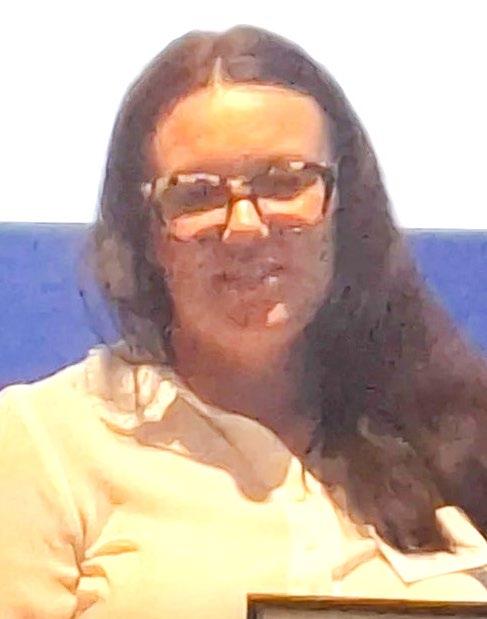
I initially fell into the credit industry. My career started at Stratco when I was a teenager. After leaving school, I secured an administrative office job where I handled scanning and reception duties. Over time, I stepped in to assist with accounts receivable (AR) and accounts payable (AP) during a colleague’s maternity leave. I thrived in the role, and when my colleague did not return, I officially took over AR. At the time, we relied on traditional paper-based systems, which added to the learning
experience. I remained in that role for about seven years before leaving as a now experienced Accounts Receivable Officer.
After having my son, I wanted new challenges and went to a new company, Goodman Fielder, in North Ryde, where I worked in collections. It was a good role for some time. Whilst still a phone-based collections and AR role, my role evolved. I went from handling cash-on-delivery (COD) payments to working with corporate and large-scale accounts. The larger accounts were more complex than just collections. I learnt about claims, returns, and other aspects of AR. After 5 years at Goodman Fielder, I had another child at which point the commute became too challenging, prompting me to seek a position closer to home.
That led me to Baiada Poultry, where I currently work as part of a larger team. I found this opportunity through the same recruitment agency that had placed me previously. It has been a diverse company. My responsibilities extend beyond collections to include AR, managing claims and returns, and handling complex queries related to retail branches. I work more on the legal issues such as dealing with Ts&Cs and project management. Currently, I focus on legal aspects of collections, including terms and conditions, project management, and transitioning customers to direct debit payments. Additionally, I work on our online applications, strategic risk analysis, and monitoring customer trends to mitigate financial risks. The location and the fast-paced nature of the food industry suits me. For example, projects in the building industry experience delays related to the long turnaround of projects. Claims and disputes take time to resolve. On the other hand, the food sector requires quick turnarounds, and I enjoy resolving issues efficiently.
What is your biggest professional accomplishment to date?
One of my most significant achievements has been my growth within Baiada. I have taken on increased responsibilities while deepening my understanding of the industry and its influencing factors. This knowledge has helped me refine our terms, risk management strategies, and implement impactful projects that benefit the business.
“It’s essential not to focus solely on collecting payments. Instead, consider all factors affecting a business’s ability to pay.”
What advice would you give to emerging credit professionals?
It’s essential not to focus solely on collecting payments. Instead, consider all factors affecting a business’s ability to pay. For example, a struggling chicken shop might not be a bad payer – it could be facing economic challenges or issues with its location. Understanding these external factors can help tailor collection strategies more effectively.
How long have you been a member of the AICM? I have been a member for almost two years through my work at Baiada. My manager encouraged me to continue my studies, leading me to complete my Certificate IV in Credit Management.
Tell me about your studies of Certificate IV in Credit Management that lead you to become student of the year?
The Certificate IV through AICM provides a solid foundation in credit management. It covers essential topics such as:
l Customer communication and collections techniques
l The Privacy Act and legal guidelines on customer engagement
l Credit applications, terms and conditions (T&Cs), and the Personal Property Securities Register (PPSR)
l Credit-related terminology and documentation handling
l Confidentiality and regulatory compliance. There are multiple study options, including online and face-to-face learning. I chose the online self-paced format, which suited my background and allowed me to complete the program in nine months. While the timeline varies for different individuals, I successfully finished in October 2024.
Shortly after, I received an email about registering for the AICM National Conference. Initially, I
considered skipping it due to my son’s HSC commitments and other personal obligations, however, that changed after I received a call informing me that I had been named ‘Student of the Year’. That was exciting. Currently, I am pursuing a Diploma of Credit Management, which should be around a 12-months of a self-paced online program. My hands-on experience in credit has given me a strong foundation for my studies.
What has being a member of AICM done for you?
Membership with AICM has broadened my exposure to the credit industry. Attending economic forums and webinars has provided me with insights into regional economic trends, which play a critical role in risk management. Understanding these broader market factors allows me to adapt our credit strategies and think beyond immediate collection goals. The network and resources offered by AICM have been invaluable for my professional development.
What are your favourite things to do outside of your profession?
I have two teenagers, so much of my time is spent running around after them! I’m an avid reader and enjoy fiction books, which help me unwind. My son is passionate about soccer and plays for a feeder club for the Western Sydney Wanderers, while my daughter is dedicated to dance. Between their training sessions and commitments, I always have a book on hand to keep me entertained. Both of my children are highly driven and push themselves to excel, which keeps our family busy.
Please confirm your current position and company. Director of Credit and Fraud Risk Operations, at Optus, Non-Executive Director on the AICM Board.
What has been your career journey?
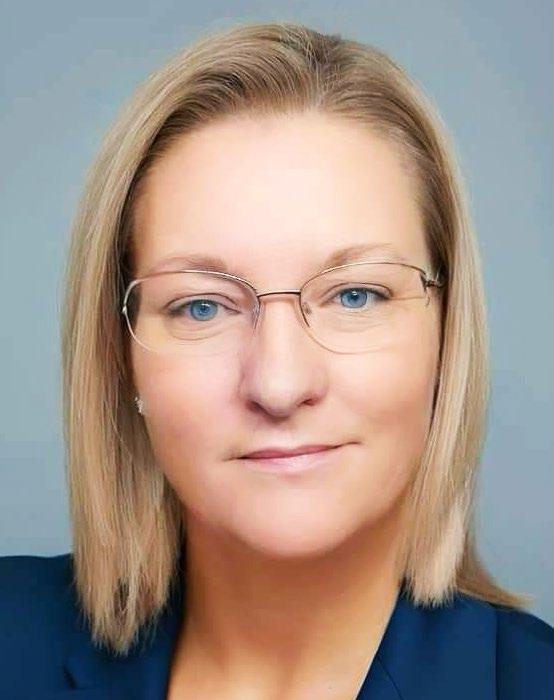
I’ve been in credit ever since the very beginning of my career. At 18, I started a traineeship with an air conditioning company, Bradway Air Conditioning (now known as Temperzone). I quickly fell in love with the work, which included reconciling petty
“The network and resources offered by AICM have been invaluable for my professional development.”
cash and counting out the weekly wage [cash] packets (yes, I’m ‘THAT’ old), and writing up the debtor cards (notes) for the credit manager (CM). I admired the relationships the CM had with the customers and how much ‘fun’ she brought to the day-to-day role – it genuinely inspired me.
I instantly started studying for the credit diploma, which took me two years to complete (it’s a three-year course). In my final year, I was working full-time, studying full-time, and pregnant. This period of my life was a blur of hard work, but it taught me resilience and to never give up on your dream! I steadily progressed in my career, moving from junior clerk to team member, supervisor, and eventually credit manager. From here I entered the world into leadership, a journey I am still on.
I then spent 18 months with Silverwater Jail’s Corporate Services Industries (CSI), managing collections for products made by the inmates such as: furniture, airline headsets, baked goods, and number plates. It was a fascinating role and an incredible work-relief program for inmates. You would be surprised at how much gets produced there.
I also worked for two waste removal companies (JJ Richards & SITA) and one transportation company (Roadmaster), where I loved the grassroots, blue-collar work environment. The credit industry has exposed me to a variety of businesses, but I developed a passion for commercial lending – helping families and small businesses create practical financial arrangements, well before the term “hardship” became common.
Later, I took an unusual career step, after holding the role of Credit Manager at Roadmaster for 18months, I went back to work as a credit supervisor, but for a much larger business – LG Electronics. This turned out to be a great decision! Over seven years, I gained invaluable experience, filled knowledge gaps, and grew under a great manager who gave me autonomy with the right amount of light touch guidance. These years were key to my development as a credit specialist. In
2013, I was approached for a role at Optus. I wasn’t looking at the time, I was very comfortable at LG, but it was a very good opportunity and forced me to push myself outside of my comfort zone.
Over time, I’ve been fortunate to have had multiple roles within Optus. The first being Credit Manager of the Wholesale and Satellite divisions, and since then I have held eight different roles across Optus Consumer, Small Business, Enterprise, Government and Wholesale. With the most recent being promoted to Director of Credit & Fraud Operations where my leadership role is focused on people leadership & strategic outcomes by way of introducing improve efficiencies and automation.
Throughout my career, I’ve had the privilege of working with incredible leaders who’ve shaped my journey, each teaching me valuable lessons – both good and bad. Sometimes it’s something I want to emulate or other times it’s a mistake I don’t want to repeat. I still catch-up regularly with Ian and the team from LG and remember fondly Gary Roach (past leader from Optus) who was the one to push me into becoming an executive leader and gave me the confidence and guidance to deal with peers at this level. They all leave a mark.
What is your biggest professional accomplishment to date?
Encouraging constant automation. I love being involved in transforming outdated systems into efficient, modern processes, making the team leaner and stronger. Exploring various solutions and tapping into in-house expertise. I firmly believe in hiring people smarter than me! Team members with expertise, or even just a passion for robotics or automation – they bring the most transformative ideas. My team has been pivotal to my/our success. Often the quiet achievers, deliver the most.
What advice can you give to emerging credit professionals?
Jump in and give it your all – you’ve got nothing to lose! And do not miss out on an opportunity to meet new people. If you’re at a networking event, approach a least ONE new person who you really want to speak with. Just one good conversation makes an event worthwhile.
How long have you been a member of the AICM? I recently celebrated 15 years as a member and
7 years as a CCE. I first joined the AICM through the Young Credit Professional (YCP) program. A recruiter who helped me find my role at LG encouraged me to participate. I made it to the state finals (didn’t win) but it did open many doors to networking events, conferences and meeting various levels of professionals within the industry, which is what excited me to join the AICM.
What has being a member of the AICM done for you?
Being part of the AICM has opened doors to incredible friendships, networking opportunities, and professional relationships. It has also supported my ongoing education – I owe my diploma and much of my personal development to the organisation.
I had the opportunity to lead the NSW Council as Vice President then and as President and now sitting on the board. But of course, I am still learning and working on myself within the AICM, for example, public speaking at events. Many of you may (or may not) know, I really do not like being behind the podium but through continual practice with the AICM, I am at least no longer afraid of it.
What are your favourite things to do outside of your profession?
I love fishing! and try to get out at least every second weekend in the warmer months. I also enjoy going to the gym with my daughter – it’s a great way for us to bond as she is a bit of a gym junkie. But to no surprise I’m sure… I’m a massive fan of jigsaw puzzles, board games and card games with friends – anything that challenges the mind.
Please confirm your position/ company you work for currently
I am the Australia Country Manager for DecisionOK by Credisense.
What has been your career journey?

I grew up and completed my schooling in Johannesburg, South Africa. After finishing school, I spent two years traveling overseas before starting my career in property development. In this role, I managed off-plan residential developments for
6 years, working my way up to leading a team and reporting directly to the Sales Director. My responsibilities included selling and negotiating on off-plan properties, collaborating with mortgage brokers to secure financing, and site management.
In 2010, I decided to leave South Africa and relocated to London where I transitioned into the Financial Services sector, securing a consulting role with a company providing tax compliance solutions to large enterprises. This sales-focused position allowed me to progress to a senior sales role over three years. During this time, I met my wife Naomi, who was traveling to London from Sydney on a gap year. We then decided to move back to Australia together.
Having no prior work experience in Australia, I set out to strategically target large, wellestablished corporations to enhance my longterm prospects. This approach led me to secure a role with St. George Bank, part of the Westpac Group, as a Business Development Manager in consumer lending. In this position, I focused on building relationships with accountants, property developers, and other referral partners to generate mortgage referrals. My plan was to spend a year in this role, gain experience in Australia, and then seek a more long-term opportunity.
In 2016, I joined CreditorWatch as a Business Development Manager when it was still a small but ambitious business. After 18 months, I was promoted to the role of Enterprise Sales Executive and subsequently advanced to Enterprise Sales Manager. Over the next three years, I built and led a high-performing team, driving significant growth in the enterprise market with a particular focus on the financial services sector. During my six-
“embrace technology. The pace of innovation is extraordinary, and modern tools and systems can dramatically help improve efficiency and reduce risks.”
year tenure, I contributed to the company’s rapid expansion.
In 2022, during the pandemic, I was approached to join DecisionOK by Credisense, as a founding employee. Leaving CreditorWatch was a tough decision given my six years there and the relationships I had built, but the opportunity to challenge myself and step out of my comfort zone was too compelling to pass up.
DecisionOK by Credisense had already established itself as a market leader in New Zealand, and we saw a unique opportunity to revolutionise credit management in Australia. The software’s innovative design and ability to adapt to diverse business needs stood out as a major competitive advantage. I was excited by the opportunity to join a founding team and play a hands-on role in introducing and scaling the business in the Australian market.
Since then, we’ve been steadily growing, securing new clients, and even becoming a national partner of the Australian Institute of Credit Management (AICM). Starting from scratch was certainly challenging, but the belief in the product and the opportunity to build something impactful from the ground up have made it an incredibly rewarding experience. It has pushed me to grow
both personally and professionally while allowing me to contribute to the credit industry in Australia.
What is your biggest professional accomplishment to date?
More recently, being part of the founding team for a new business has been an incredible journey. Contributing to its growth and day-today success has been both a learning experience and a rewarding opportunity to make a difference. I feel fortunate to have been approached for this role, as it reflects trust in my abilities. Prior to that, some of the most memorable achievements was securing some key Tier 1 clients after several years of persistence. They were significant wins for the business, and I deeply appreciated the support and recognition from my colleagues along the way.
What advice can you give to emerging credit professionals?
I would offer two key pieces of advice. First, stay curious and never stop learning. The credit industry is constantly evolving, so it’s essential to stay informed about new regulations, emerging technologies, and evolving market trends. This dedication to growth will keep you ahead of the curve and increase your value as a professional. Second, embrace technology. The pace of innovation is extraordinary, and modern tools and systems can dramatically help improve efficiency and reduce risks.
How long have you been a member of the AICM? I’ve been a member of the AICM for about eight years.
What has being a member of the AICM done for you? Being part of the AICM has been incredibly beneficial. It’s a fantastic platform for networking, building strong industry relationships, and meeting like-minded professionals. It has provided valuable resources for upskilling and professional development, and the support within the community has been invaluable.
What are your favourite things to do outside of your profession?
Family is at the heart of everything I do and I cherish every moment spent with my two young daughters. Beyond that, I have a deep passion for
nature and photography. Capturing the beauty of the natural world is something I find incredibly fulfilling, and I’m excited to be heading back to South Africa’s Kruger National Park later this year for another photographic excursion. I also love the outdoors and enjoy hiking whenever I get the chance. I’m equally obsessed with technology and consider myself a bit of a gadget geek. Whether it’s upgrading and automating my smart home, experimenting with the latest cameras and drones, or testing out remote-controlled cars, I’m always playing around with something.
The Australian Institute of Credit Management welcomes our Partners for 2025
National Partners


Divisional Partners

Official Division Supporting Sponsors



Our National, Divisional and Professional Partners support and work with the AICM to promote the Institute’s activities, represent the Credit Industry and develop the careers of all Credit Professionals. As these organisations support your Institute and your Industry please consider them when you require assistance.

For seven years, our annual Risk Seminar series has provided invaluable insights into how current trends shape credit risk management. This series, informed by a comprehensive survey of credit professionals, brings together leading minds in credit, insolvency, and law to navigate and respond to evolving risk.
In 2025, we’re taking it a step further with a dynamic, interactive program designed to equip credit professionals with the knowledge and tools needed to thrive in an uncertain environment. This year’s seminars will cover what you need to succeed, including:
l Fraud & Cybersecurity: Learn best practices for fraud prevention and strategies to address growing cybersecurity threats.
l AI & Technology Adoption: Explore how organisations are leveraging AI to enhance credit risk management and fraud detection.
l Improving Collections: Discover actionable strategies to optimise collections and mitigate the impact of deteriorating DSOs.
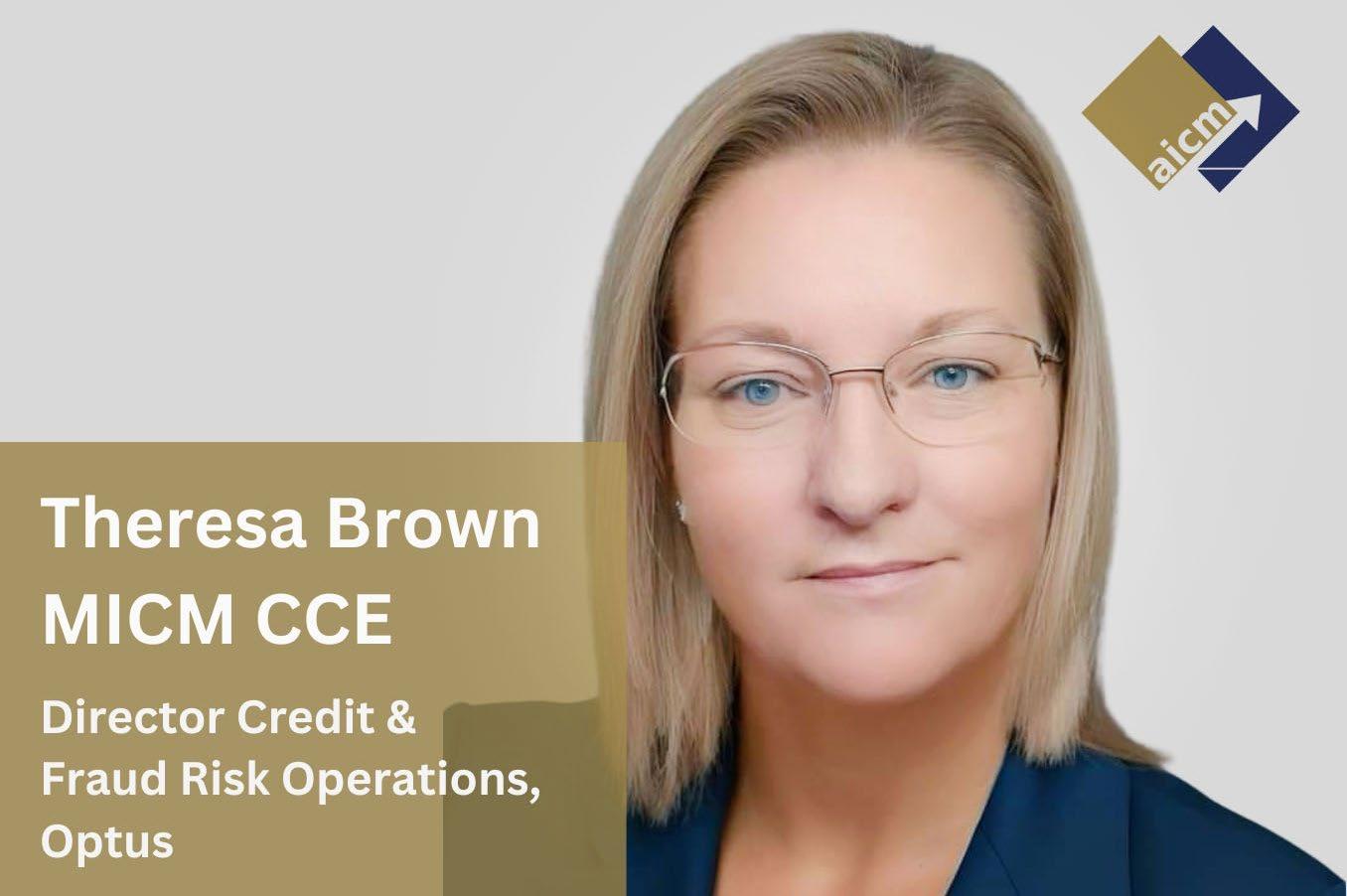



l Preparing for 2025 Challenges: Unpack emerging risks, including ESG integration, economic volatility, and sector-specific challenges, with proactive solutions tailored for credit professionals.
l Bankruptcy and Insolvency: Emerging trends and recent developments.
These seminars are thoughtfully designed by the best minds in credit to help you:
l Identify where credit and insolvency risks will arise.
l Understand emerging trends impacting your portfolio.
l Adapt to new reforms and an ever-changing landscape.
l Maximise returns while minimising risk exposure.
Whether you manage commercial or consumer credit portfolios, these seminars are tailored for experienced credit professionals across all industries and sectors.
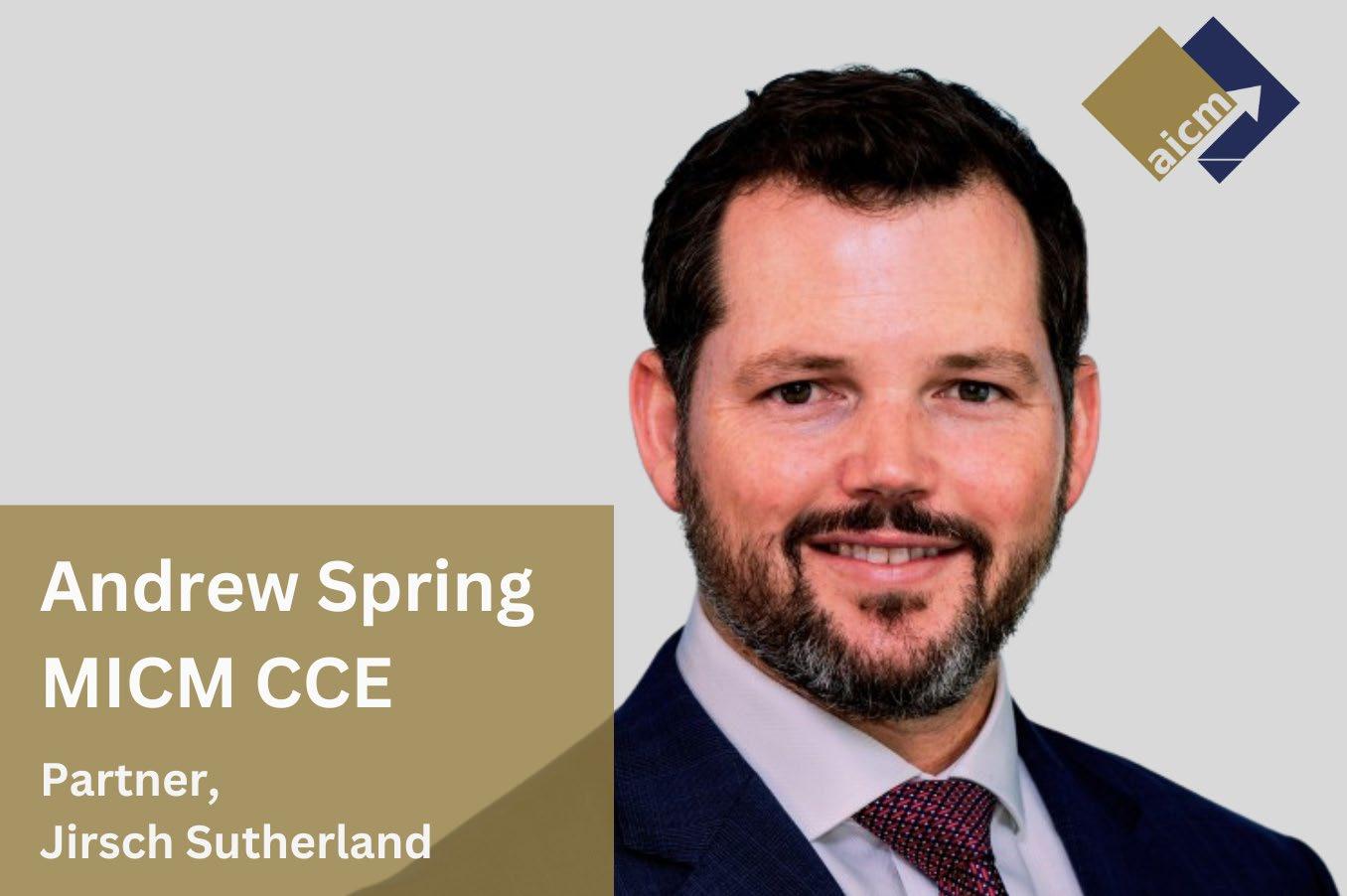

Event Details:
When: Tuesday 11 March 2025, 12:30pm – 6:00pm
Where: NSW Parliament House, 6 Macquarie Street, Sydney NSW 2000
Earlybird Registration Prices:
Members: $195.00 (inc. GST), Non-members: $255.00 (Inc. GST)
After 25 February:
Members: $215.00 (inc. GST), Non-members: $280.00 (Inc. GST)
CPD Points: 4



We recognise those members who achieved membership anniversaries between October and December 2024. Congratulations to these members on achieving such important milestones.
The Institute welcomes the following credit professionals who were recently admitted to membership between October, November and December 2024.
Angela Smith SLF Lawyers
Carolyn Fleita
Emma Mos Jirsch Sutherland
Emma Player Global Contractor Management Solutions Pty Ltd
Kane Jones The Mutual Bank
Laetitia Wojtas Fine Art Restoration - Laetitia Wojtas
Lauren Greenley The Mutual Bank
Matthew Bryant Jaybro Australia
Matthew Lamb SMS Professional
Michelle Patel Thoroughbred Recoveries
Monique Berry Holcim Australia Pty Ltd
Ourvashi Persand Hanson Construction Materials Pty Ltd
Sapna Marwaha Schindler Lifts Australia
Taline Matossian Holcim (Australia) Pty Ltd
Tamara Boljevic DecisionOK by Credisense
Diane Kamya Dulux Group (PNG) Pte Ltd
Queensland
Adriana Diaz Guerrero Hastings Deering
Clint Davis BDE
Dayanis Baldoquin Alvarez Hastings Deering
Emily Wong Shell Energy Retail
Kylie Chapman Fletcher Building
Leann McDonald Finance One
Miles Blok BDE
Nicky Poiner Stoddart Group
Page Manamana Hastings Deering
Rachel Gregory Hastings Deering
Ramesh Dhanashekar Fletcher Building
Robyn Boniface Optimum Recoveries Pty Ltd
Samuel Lane Agility Law
Sandra Jeckells Building Industry Credit Bureau
Sara Trad BGW Group/CNW Pty Ltd
Shene Nand BDE
Taylor McGovern Fletcher Building
Alison Hoggan Toro Australia
Amy Mularczyk Viterra
Anne Sutton Toro Australia
Joanne Paterson Global Pumps
Maria Visconti Toro Australia
Amy Weiner SLF Lawyers
Ashleigh Rachwalski-Moroney SLF Lawyers
Chantelle Benjamin BMW Australia Finance
Hannah Chizari Simplot
Jessica Brodie Allianz Trade
Joel Caruso Bizcap
Judy Vurlow McArthur Commercial Recoveries
Karla Ardeljan
Kasey Woolley McArthur Commercial Recoveries
Kaylee Hug McArthur Commercial Recoveries
Louise O’Bryan SLF Lawyers
Michelle Grulke Toro Australia
Muhammad Kazim Alex Fraser Group
Natalie Green Chemist Warehouse
Olga Youssef Red Coral Seafood
Rebecca Treloar
Sarah Brooks Chin Communications Pty Ltd
Sheryl-Lee Raggatt SLF Lawyers
Stephen van Dorp SLF Lawyers
Susan Muna Silk Contract Logistics Pty Ltd
Emma Izzard-Knight Harvest Road Group
Erin Mason CSBP Ltd
Jocelin Le Harvest Road Group
Martin Bigg Harvest Road Group
Robyn Tran Horizon Power
Vanessa de Mello Harvest Road

For information, options and pricing please contact Claire Kasses on +61 2

Web: https://humanistiqs.com.au/
Email: inbox@humanistiqs.com.au
Level 5, 35 Clarence Street, Sydney NSW 2000
Tel: 1300 426 722
Email: info@4ampac.com.au
Web: www.4ampac.com.au
AMPAC Debt Recovery is a specialist debt collection practice supporting organisations around Australia and in over 180 countries worldwide. With decades of experience and global reach, AMPAC is a trusted partner to some of Australia’s highest profile private and public sector organisations. Call or email us to next time you are reviewing your debt recovery needs.
Divisional Supporting Sponsor
Commercial Credit Services
Tel: 02 9671 0400
Email: jamesvp@commercialcredit.com.au
Web: www.commercialcredit.com.au/
Commercial Credit Services Group is a professional debt collection agency that provides debt recovery services across Australia and New Zealand, working closely with our clients to understand their needs and provide the best solutions tailored to suit.
Divisional Supporting Sponsor

CCSG
Tel: (02) 8568 6539
Web: www.ccsgroup.com.au
Credit Collection Services Group (CCSG) is a leading full-service debt collection agency. We specialise in debt collection, litigation, commercial default listings, portfolio ledger management, and financial hardship management. At CCSG, we understand your challenges, have proven expertise, and protect your interests through robust compliance and best business practices. Our experienced team is dedicated to engaging with people effectively, delivering results that improve cash flow and financial stability for our clients. Partner with CCSG for professional, efficient, and ethical debt collection solutions tailored to your needs.
At Humanistiqs, we specialise in unlocking human potential through tailored solutions in Advisory, Outsourced HR, Recruitment (Permanent & Temporary), Strategic Planning, Training, Facilitated Workshops and Compliance. Our proven approach – Strategy + Structure x People = Performance – empowers businesses to align their people and strategy for exceptional results. From practical HR support and compliance to leadership coaching and workforce development, we partner with clients to create sustainable, high-performing teams. Let us help you transform ambition into action, driving success with human-focused strategies that deliver measurable outcomes.
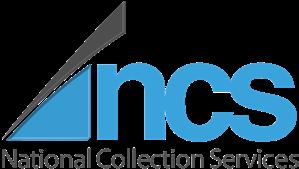
National Collection Services
Tel: 1300 888 758
Email: info@natcollection.com.au
Web: https://natcollection.com.au/
National Collection Services are a boutique Debt Collection Agency that sees ourselves as an ‘extension’ of your internal credit department. We will work with you to form a partnership, with our focus being placed on the associated levels of engagement, support, communication and goals of your organisation.
Divisional Supporting Sponsor

Tasmanian Collection Service
Tel: 03 6213 5555
Email: connect@tascol.com.au
Web: https://www.tascol.com.au/
With over 140 years’ experience, branches in Hobart, Launceston and Burnie and a database on the Tasmanian population that is second to none, there is no one better placed to handle your Tasmanian debts. Why not consider outsourcing to a local expert, you’ll be glad you did.

Neill Borg, Enterprise Director
Tel: 0401 066 624
Web: www.decisionok.com.au
Email: neill.borg@credisense.io
DecisionOK by Credisense revolutionises the way businesses acquire new customers. One-size does not fit all. Our platform provides personalised, omni-channel, and unified customer experiences that embody your brand. Orchestrate and analyse thousands of data points and services that automate any process or decision. All from the cloud. All with no coding.
AICM Divisional Partner

Tel: 1800 123 613
Web: www.onguard.com
OnGuard’s Credit management solution will help you hit your collection targets – each and every month.
By working smarter and providing better visibility, OnGuard will help you reduce your DSOs. Why not give your staff a friendly solution that will make their life so much easier.
Contact us to show you how OnGuard has made life a whole lot easier for our customers.
AICM Divisional Partner

Opypro
Email: partner@opypro.com.au
Web: www.opypro.com.au
Opypro is a single cloud-based platform that fully automates the end-to-end B2B credit management process. Multiple systems can be replaced by Opypro streamlining onboarding, providing real time access to business buyer account information and increasing payment success with consolidated invoicing, automated Dunning cycles and payment reconciliation. Contact us to see how Opypro can drive efficiencies across your trade accounts receivable process.

For information, options and pricing please contact Claire Kasses on +61 2 9174 5727 or E: claire@aicm.com.au
Lane Communications
Tel: 08 8179 9900
Web: www.laneprint.com.au
Lane are widely regarded as one of the largest and most technologically advanced print production and distribution companies in Australia. We are an industry leader in digital and offset print, point of sale signs, complex embellishments and print finishing, storage, kitting and mailing. With innovation at our core, our services extend beyond transactional mail and promotional print production to include SMS, bulk email communications, and electronic billing solutions. Lane are your partner in print and multi-channel communications.
Building
Tel: 07 3852 1342, 1800 931 222
Email: bicb@bicb.com.au
Web: https://bicb.com.au
If your business supplies the building industry, we have industry-specific data that will raise your credit management decision-making effectiveness and perhaps prevent/minimise loss. We know you like to do your job well. Let us help you do it even better. For more info, call today.

We’re proud of the AICM and we want to let all credit professionals know those businesses that support the AICM. Thank you to these companies for their continued support and please consider them first when you’re looking for assistance in your business. We’ll also include these sponsors on our website so you can be sure to find them easily.
For more information contact:
Claire Kasses
Direct: +61 2 9174 5727
Email: claire@aicm.com.au
Tel: 1300 560 996
GPO Box 276
Sydney NSW 2001
Tel: 1300 501 312
Web: www.creditorwatch.com.au
CreditorWatch is a leading commercial credit reporting bureau used by over 50,000 businesses across Australia. CreditorWatch offers a variety of products including customer monitoring/alerts, credit reporting, an indepth trade program and online credit applications to assist with customer onboarding and decisioning. Contact us today for more information or to organise a FREE DEMO of any of products.

Insolvency Intelligence for Credit Managers
Tel: 1300 265 753
Web: www.jirschsutherland.com.au/ insolvencyintelligence/
Email: intelligence@jirschsutherland.com.au
Insolvency Intelligence: a specialist provider of insolvency and turnaround advice and services for credit managers. Backed by national firm Jirsch Sutherland, our friendly team is just a phone call or email away, providing members with practical, strategic advice about corporate and personal insolvency. Free initial consultation; networking opportunities; training and presentations; knowledge database access. Contact us now to find out how we could assist you.
Tel: 13 83 32
Web: www.equifax.com.au
Equifax is a global information solutions company, providing data and insights that help organisations and individuals make more informed decisions. As a leading provider of credit information and analysis in Australia and New Zealand, Equifax serves key markets in risk management, marketing services and HR solutions.
Drawing from trusted sources to compile and process data, Equifax helps its customers see things and make connections that others can’t.

illion
Tel: 13 23 33
Web: www.illion.com.au
Renowned for our expertise in credit risk management, we pride ourselves in providing market leading products and services which securely store and analyse the unique data of millions of individuals and commercial entities. While we specialise in credit risk assessment and decisioning software solutions, we also provide a full suite of products that span the entire credit lifecycle. This includes lead generation and sales prospecting tools and receivables optimisation solutions.
SV Partners
Level 8, 68 St George’s Terrace, Perth WA 6000
GPO Box 2527, Perth WA 6001
Tel: 08 6277 0026
Fax: 07 3229 7285
Email: perth@svp.com.au
Web: https://svpartners.com.au/
SV Partners is a specialist accounting and advisory firm with 17 offices across Australia. Our expert accountants have the skills and experience to provide tailored insolvency, turnaround and advisory services. We partner with professionals and their clients, providing expert advice with a human touch.

Vincents
Level 34 Santos Place, 32 Turbot Street
Brisbane QLD 4000
Tel: 1300 VINCENTS, (07) 3228 4000
Web: www.vincents.com.au
Vincents is a solutions-focused professional services firm with over 35 years of experience. Its Restructuring & Recovery team consists of experts in all aspects of insolvency, restructuring, and recovery. They are dedicated to supporting you or your clients during critical decision-making moments, acting as financial counsellors, and offering advice and solutions for a wide range of financial distress situations. Regardless of the size or complexity of the matter, their team collaborates closely with you, your stakeholders, and advisors – including lawyers, accountants, financiers, and creditors – to achieve the best possible outcome.

For information, options and pricing please contact Claire Kasses on +61 2 9174 5727 or E: claire@aicm.com.au

Agility Law
Contact: Levi Smouha, Managing Partner
Tel: 0423 982 333
Email: levi.smouha@agilitylaw.com.au
Contact: Janel Pearce, Senior Paralegal
Tel: 07 3521 8519
Email: janel.pearce@agilitylaw.com.au
Web: www.agilitylaw.com.au
Agility Law Group, based in Brisbane, specialises in debt recovery, litigation, insolvency, commercial, and property law. We handle both high-volume and complex, high-value disputes across all state and federal courts. Our expertise includes insurance and finance recovery actions. We provide strategic, practical solutions tailored to our clients’ objectives nationwide.

Holman Webb Lawyers
Tel: 02 9390 8000
Web: www.holmanwebb.com.au/
Email: andrew.tanna@holmanwebb.com.au
Holman Webb is a commercial and insurance law firm with over 60 years’ experience and the scale to provide a top-tier level of legal services. We deliver unique insights and bring relevant, real world experience to you from our offices in Sydney, Melbourne, Brisbane and Adelaide.

Results Legal
Level 4, 183 North Quay
Brisbane QLD 4000
Tel: 1300 757 534
Web: www.resultslegal.com.au
Results Legal is a national firm with a focus on promoting and protecting the rights of trade creditors. Our clients are some of Australia’s largest trade credit companies who rely on our assistance for legal recovery, dispute resolution, preference claim defence and PPSA rights.
Results Legal are the obvious first choice for companies seeking a national solution to resolve commercial disputes and pursue swift, successful and cost effective legal recovery action.
Nova Legal
Level 2, 50 Kings Park Road
West Perth 6005
Tel: 08 9466 3177
Web: www.novalegal.com.au
Nova Legal can assist with the recovery of problem debtors (large and small). Founding director Raffaele Di Renzo acts for creditors, debtors, directors, credit managers and insolvency practitioners in relation to solvency issues and dispute resolution.

Rothwell Lawyers
Tel: (03) 9329 3500
Email: admin@rothlaw.com.au
Web: www.rothlaw.com.au
At Rothwell Lawyers, we are a commercial team of solicitors and other legal support staff that are experts within our field. We pride ourselves on our ability to provide sound legal advice to individuals and businesses of all sizes, from sole directors and shareholder companies and large national corporations. Whether it is basic debt recovery, commercial law and litigation, insolvency advice to agreements and contracts, the team at Rothwell Lawyers can help you today.
Turks
Tel: 02 8257 5700
Email: marketinggroup@turkslegal.com.au
Web: www.turkslegal.com.au
Turks is a specialist commercial law firm with 33 Partners and over 160 staff across our Sydney, Melbourne and Brisbane offices. We are proud to look after the interests of trade creditor suppliers and financial institutions in:
l Portfolio debt recovery using our marketleading, real-time client interface, ‘TurksFocus’
l Resolution of complex debt disputes
l PPSA recovery
l Defence of unfair preference claims
l Supply documentation and guarantees.
Byron Thomas Recruitment
Tel: 02 8677 3020
Email: info@byronthomas.com.au
Web: www.byronthomas.com.au/
As Sydney’s leading Executive Accounting and Finance recruitment service, we offer access to our exclusive relationships, networks and database of over 80,000 Accounting and Finance Candidates. We are a privately-owned Australian company that have been operating for over 10 years. We work with a variety of public, private, family owned and private equity-backed companies.

Access Intell Pty Ltd
PO Box 1551, Kenmore, QLD 4069
Tel: 1300 831 331
Email: admin@accessintell.com
Web: https://www.accessintell.com/
Access Intell is a fast-growing fintech with a suite of B2B credit management solutions. Our platform transforms diverse data from global sources into instantly understandable insights. The customisable products create a streamlined process from online trade applications and PPSR through to ongoing risk monitoring. Fast implementation gets you onboard within 24 hours for standard setup. Backed by responsive service and flexible pricing, Access Intell is trusted by organisations across diverse industries. Visit our website to book a demo.

We’re proud of the AICM and we want to let all credit professionals know those businesses that support the AICM. Thank you to these companies for their continued support and please consider them first when you’re looking for assistance in your business. We’ll also include these sponsors on our website so you can be sure to find them easily.
For more information contact: Claire Kasses
Direct: +61 2 9174 5727
Email: claire@aicm.com.au
Tel: 1300 560 996

For information, options and pricing please contact Claire Kasses on +61 2 9174 5727 or E: claire@aicm.com.au

Aon Australia
Tel: 02 9253 7000
Email: barbara.cestaro@aon.com
Web: www.aon.com.au/australia/default.jsp
Aon is the world’s leading credit insurance broker providing innovative solutions against nonpayment risks, improving working capital and helping businesses to grow. Our deep experience across industries, investment in IT and network of credit specialists in 55 countries, provides us with the scale and expertise to deliver powerful solutions which enable businesses to identify and mitigate credit risks, sustain growth strategies with new and existing clients and optimise working capital and improve liquidity.
Slattery Valuations is Australia’s leading asset valuation team, trusted for accurate and efficient valuations nationwide and internationally. Our expertise spans finance, accounting, insolvency, insurance, mining, government, aviation, and marine sectors. We deliver discreet, evidence-backed valuations tailored to your needs and carried out under international valuation standards. Divisional
National Credit Insurance Brokers
Tel: 1800 882 820 (freecall)
Email: info@nci.com.au
Web: www.nci.com.au
National Credit Insurance Brokers (NCI) has established itself as the premier trade credit insurance broker in Australia, New Zealand, Singapore and Malaysia. Trade credit insurance is a highly specialised area of insurance and with its 35 years of experience, NCI has developed an unmatched depth of expertise in arranging the right protection at the best price for your particular trading needs.
Slattery
Web: www.slatteryassetadvisory.com www.slatteryauctions.com
Email: gtanner@slatteryauctions.com.au
